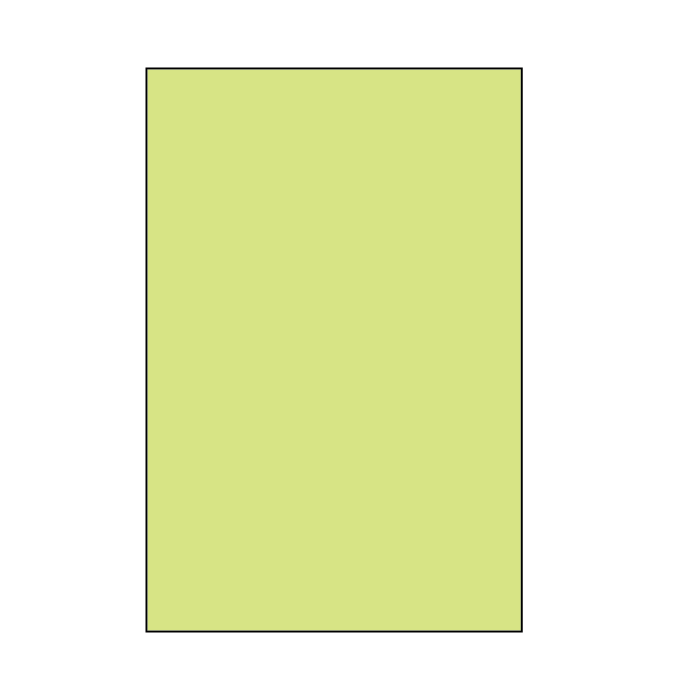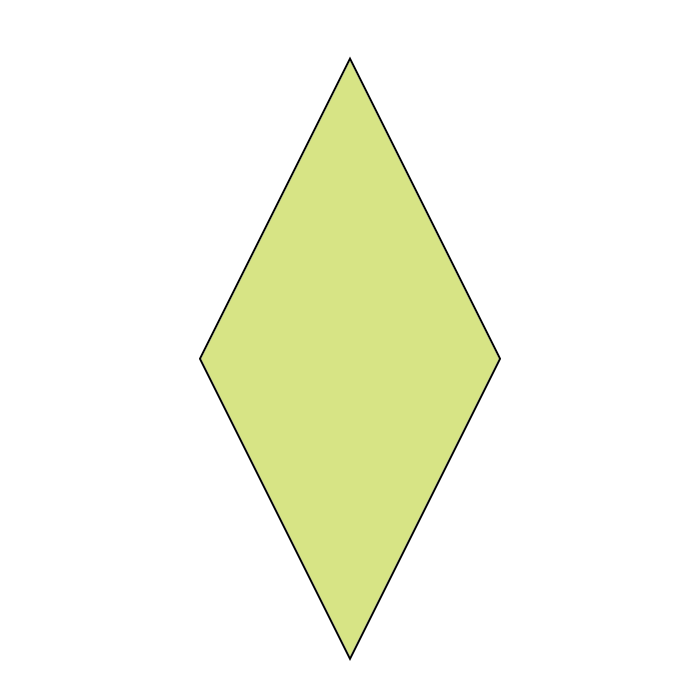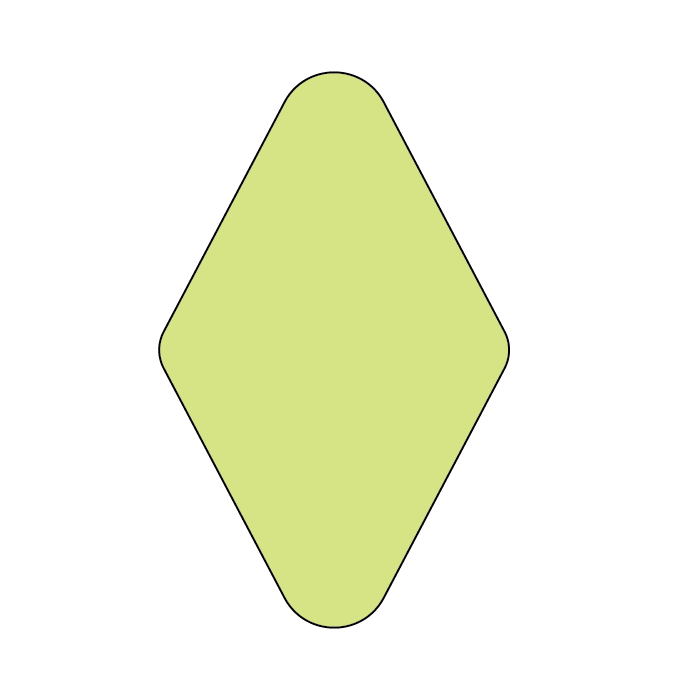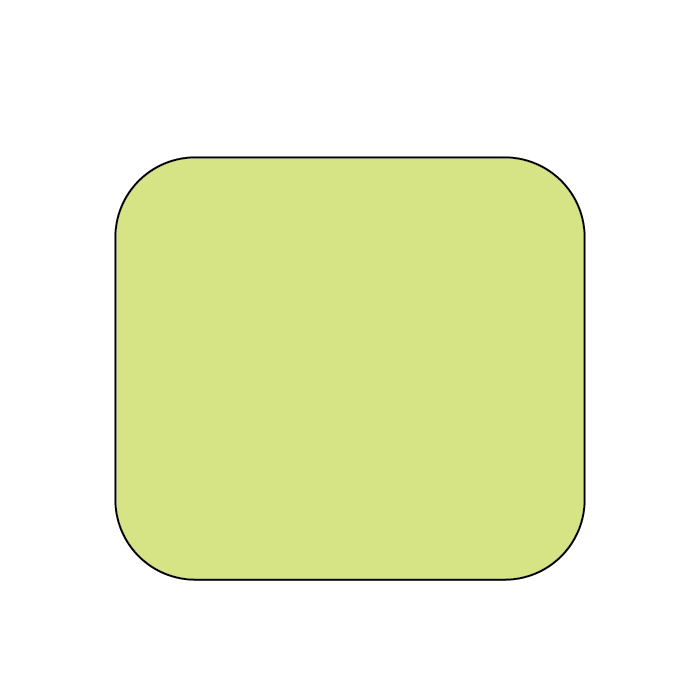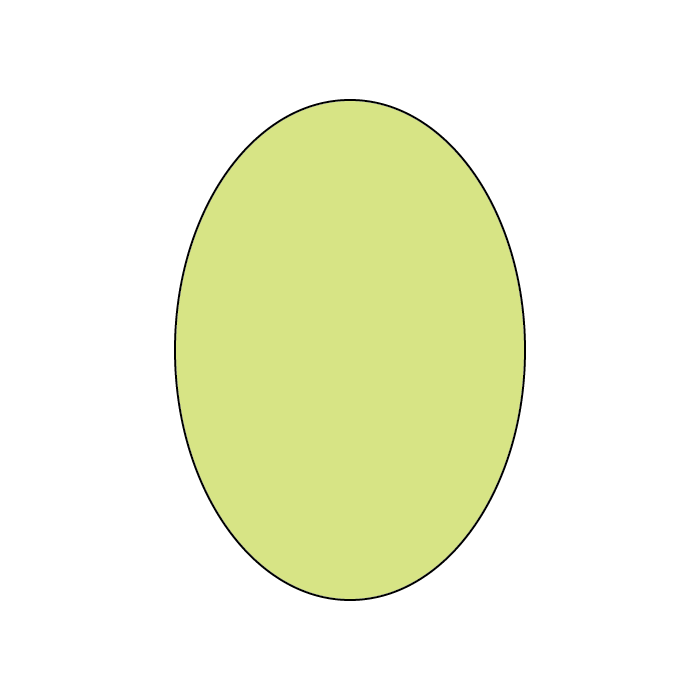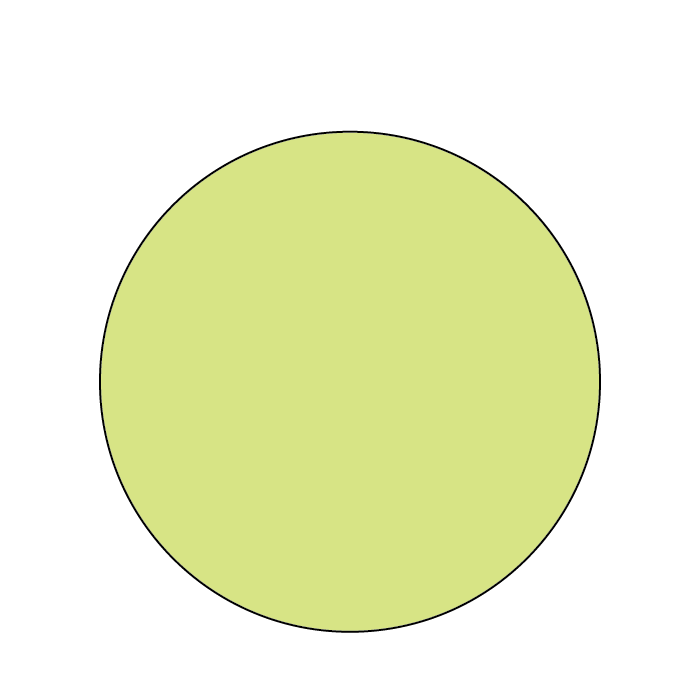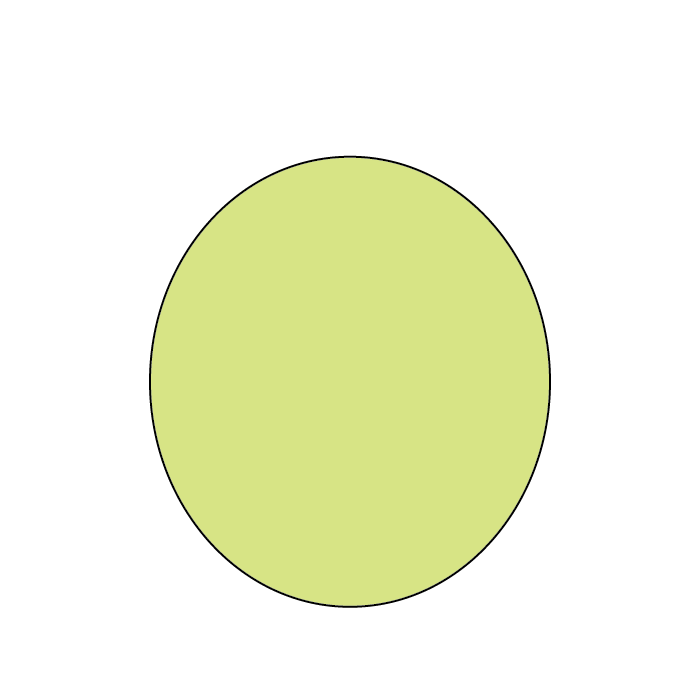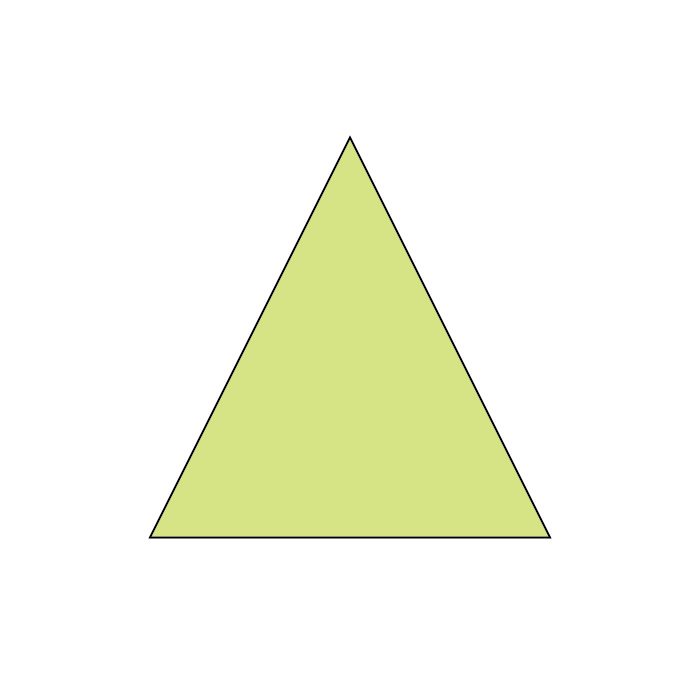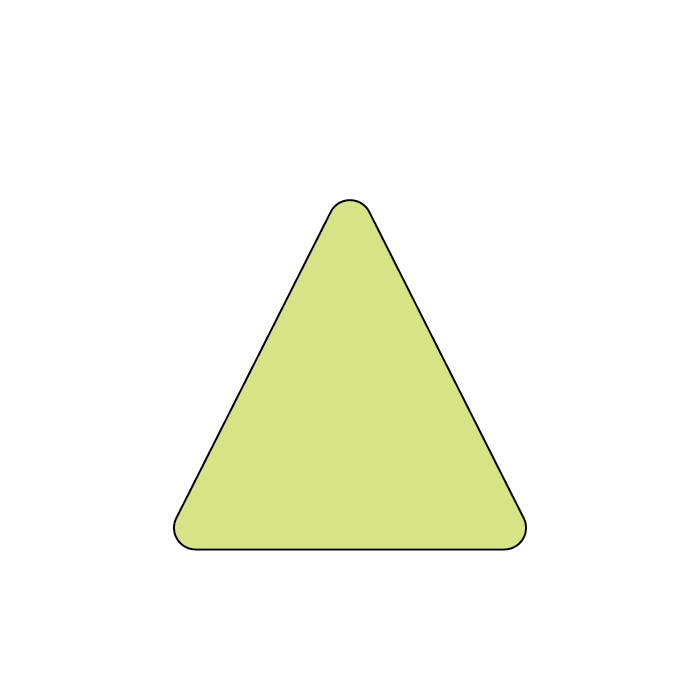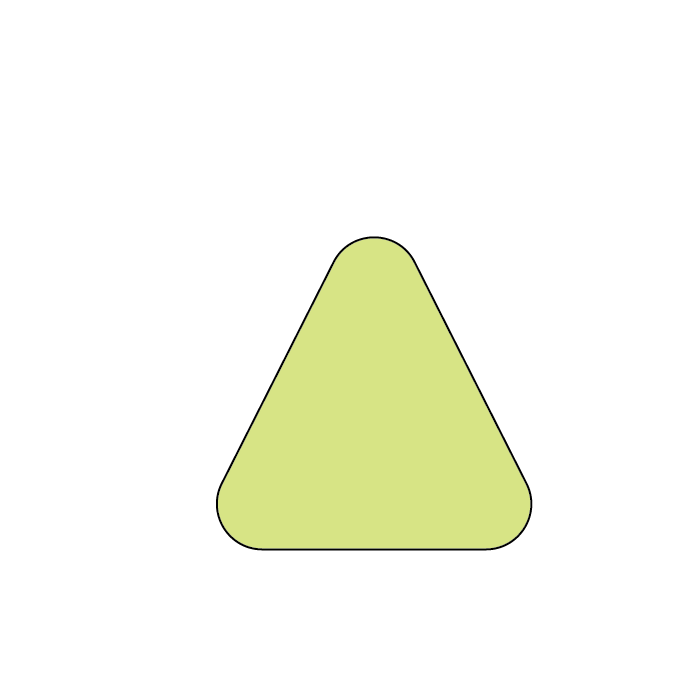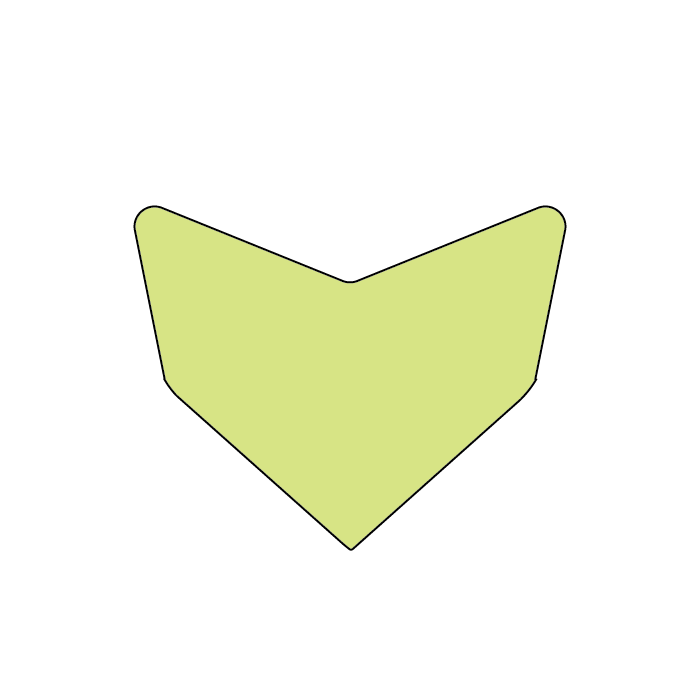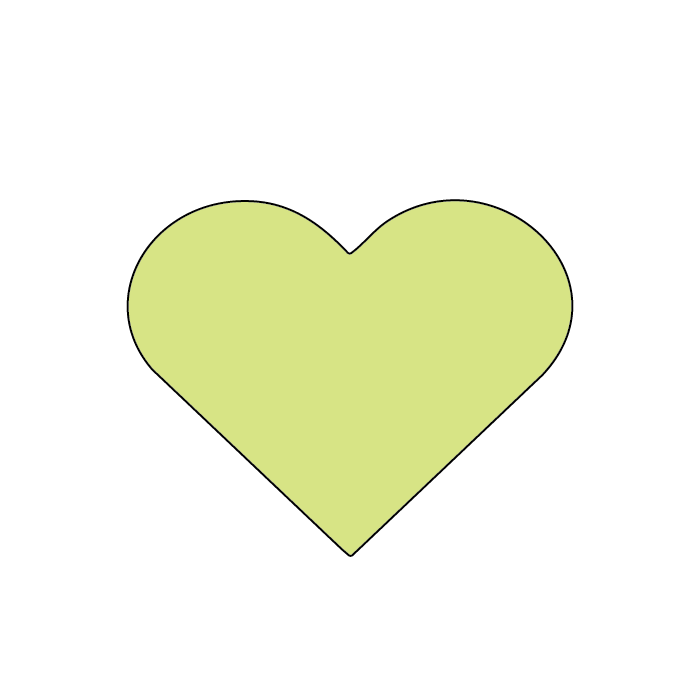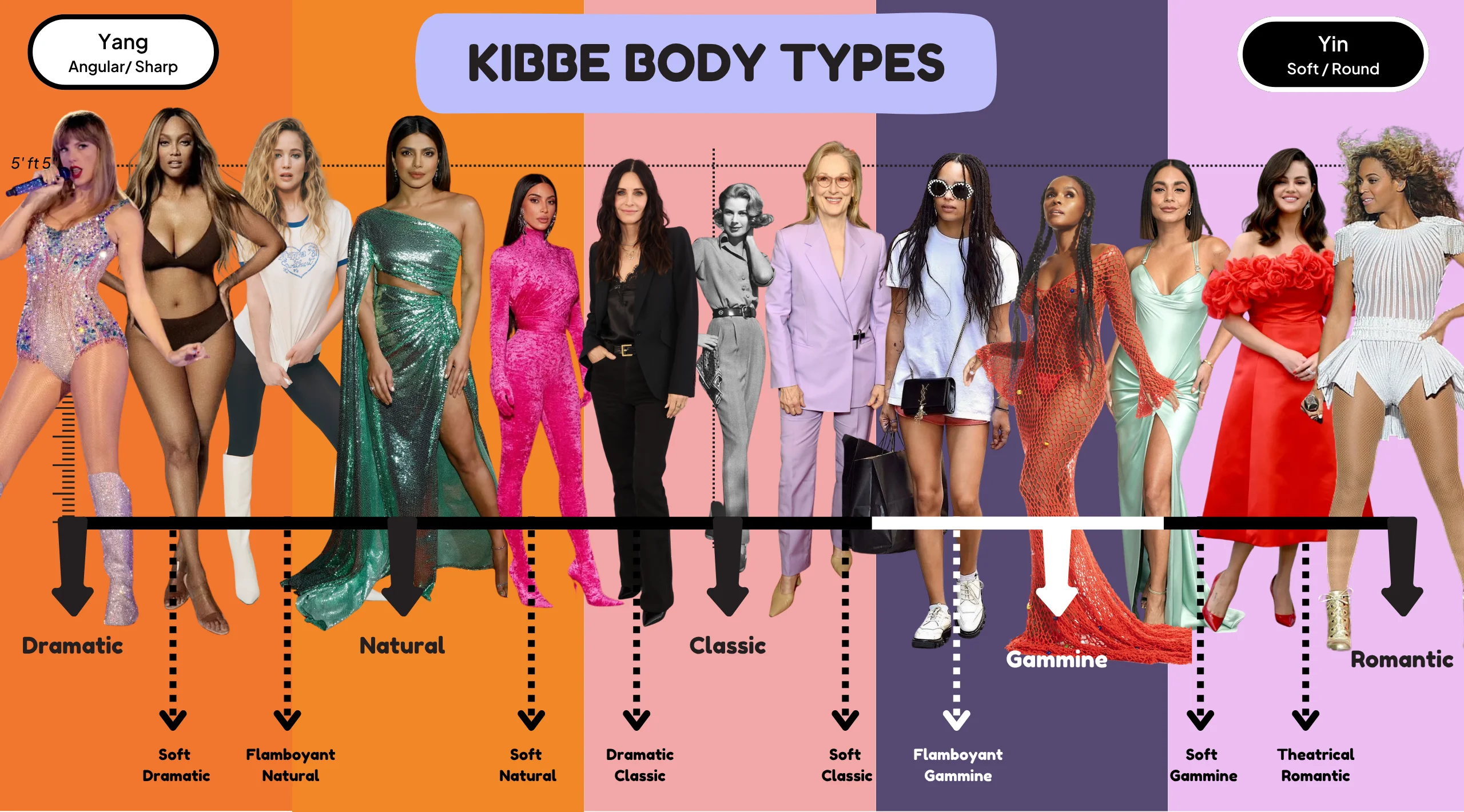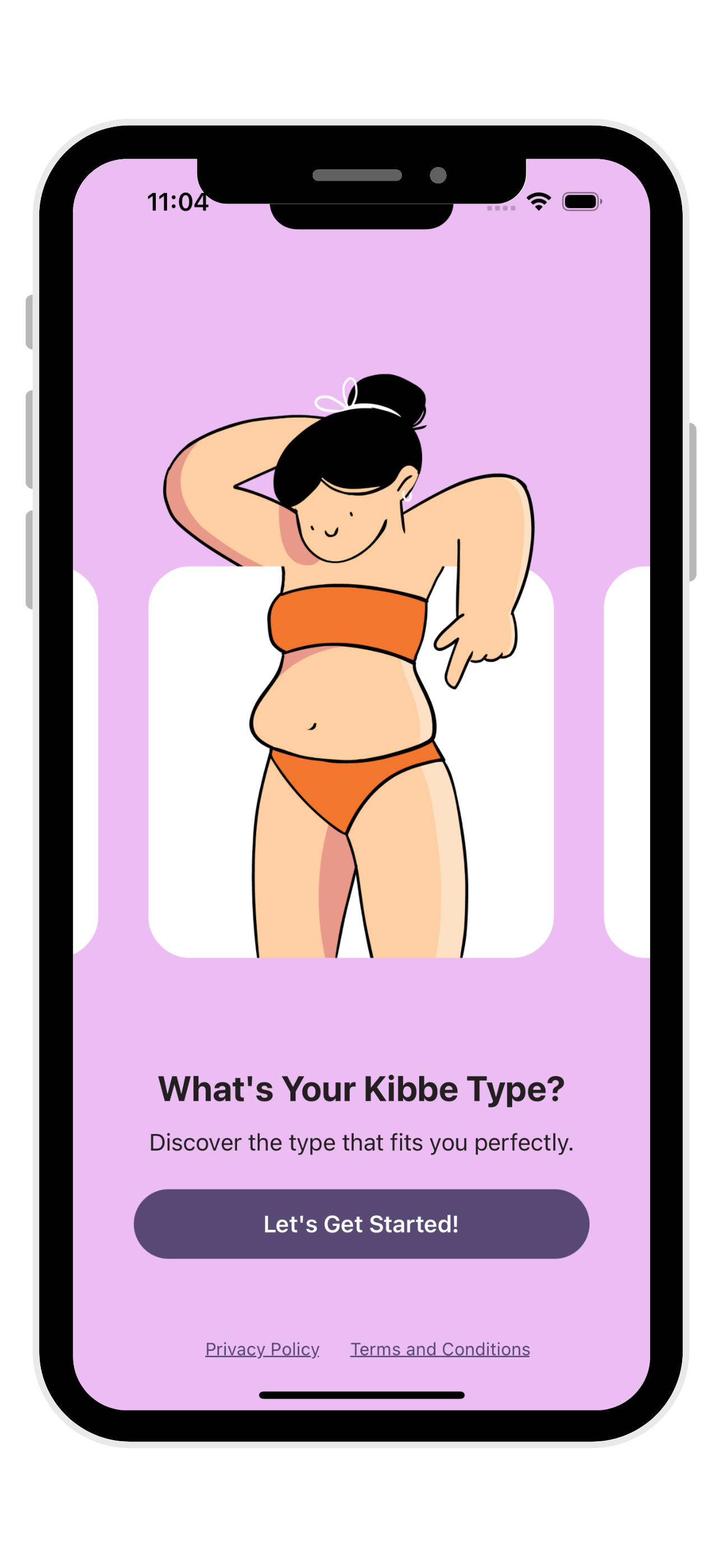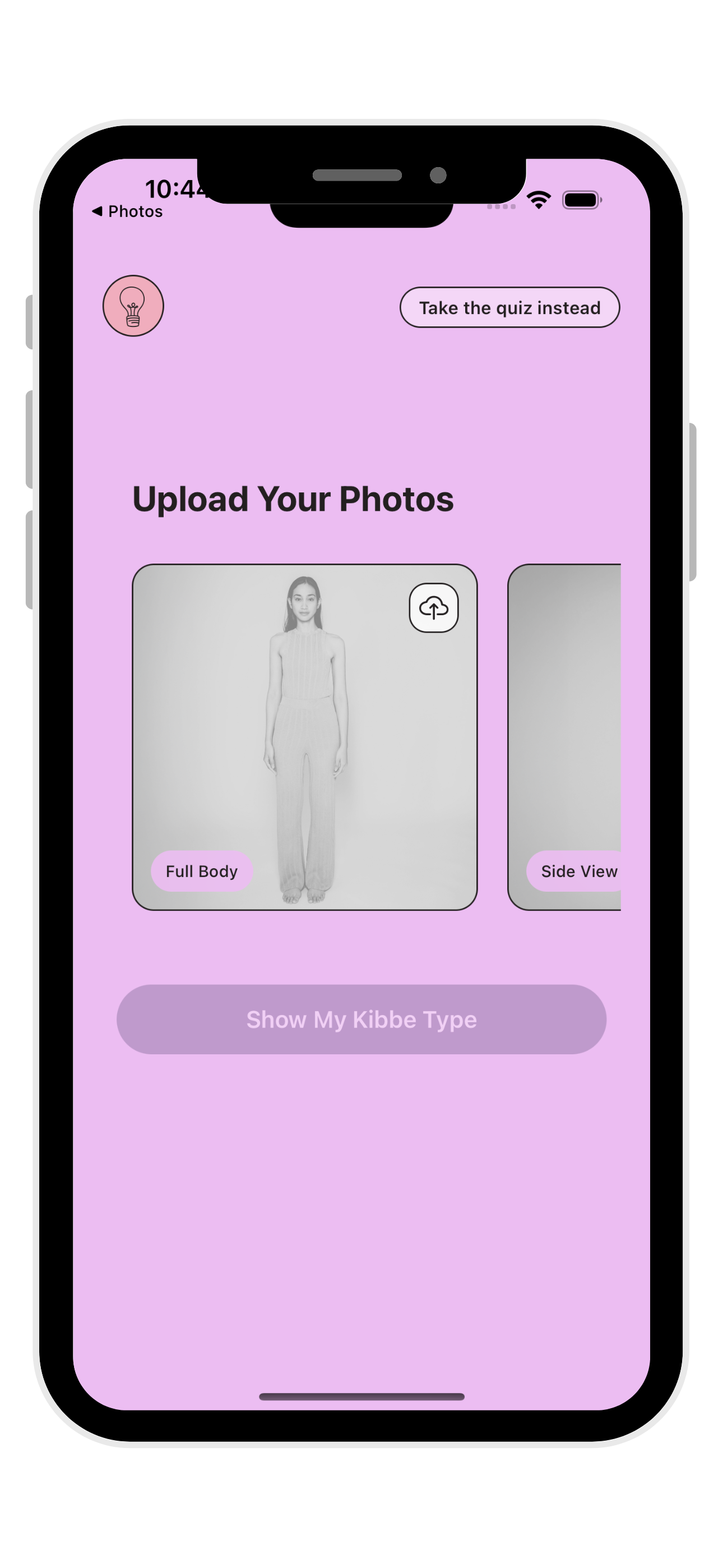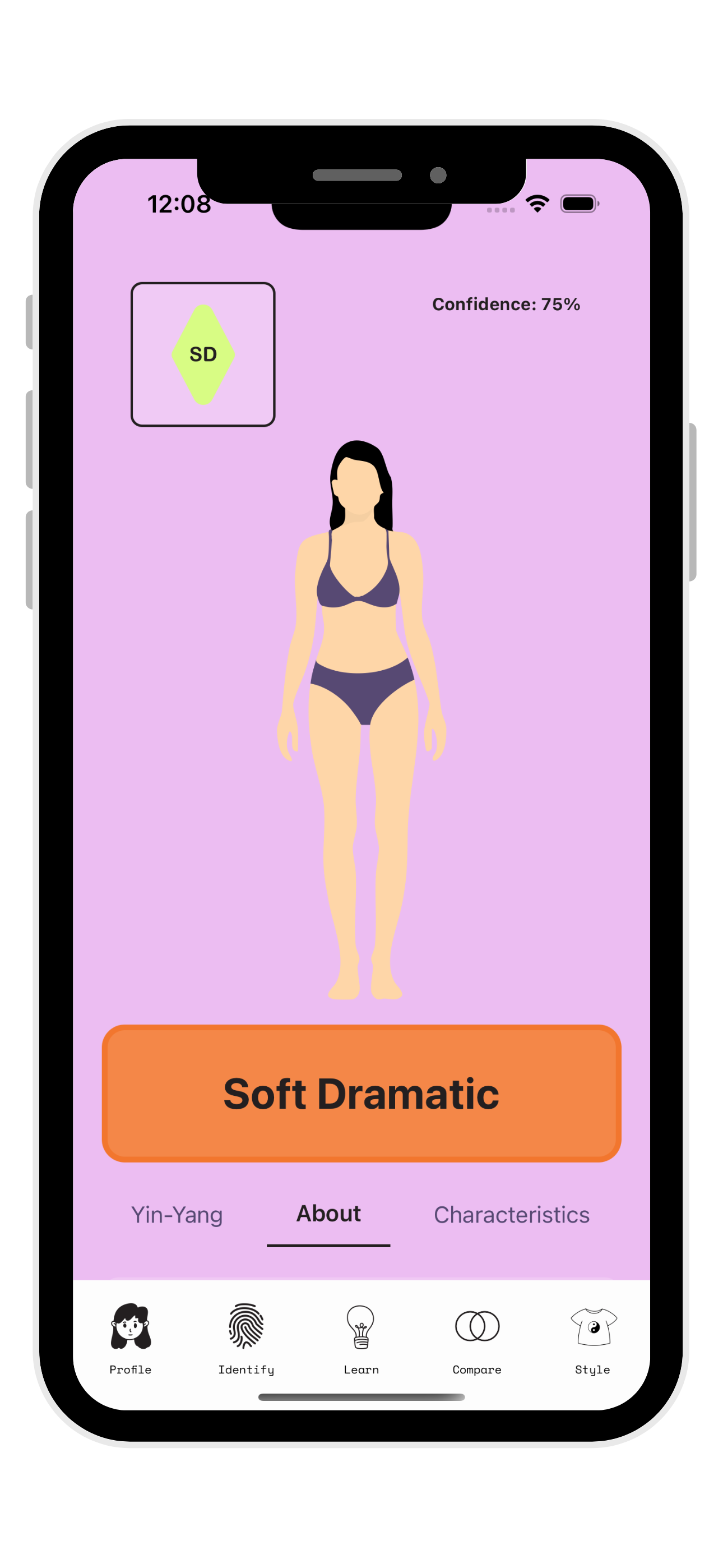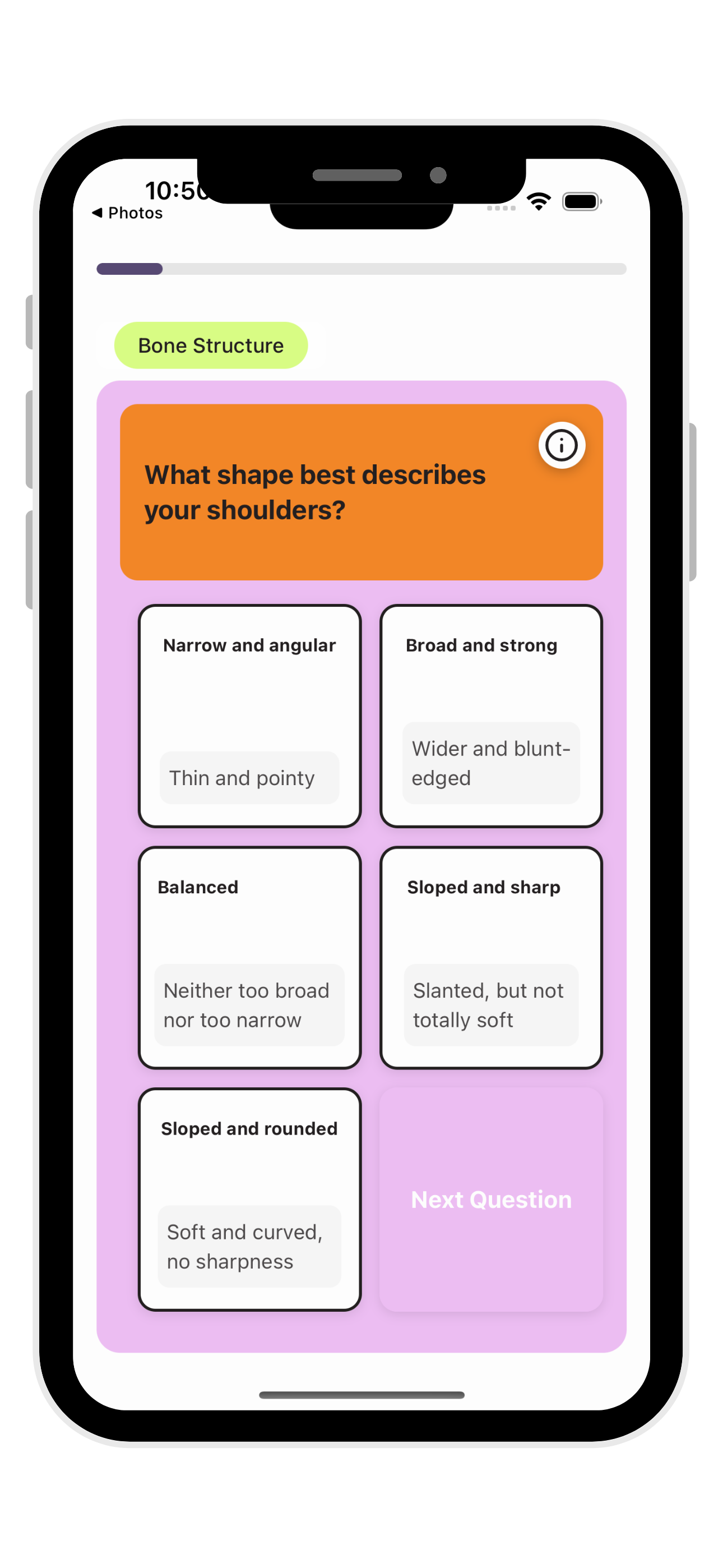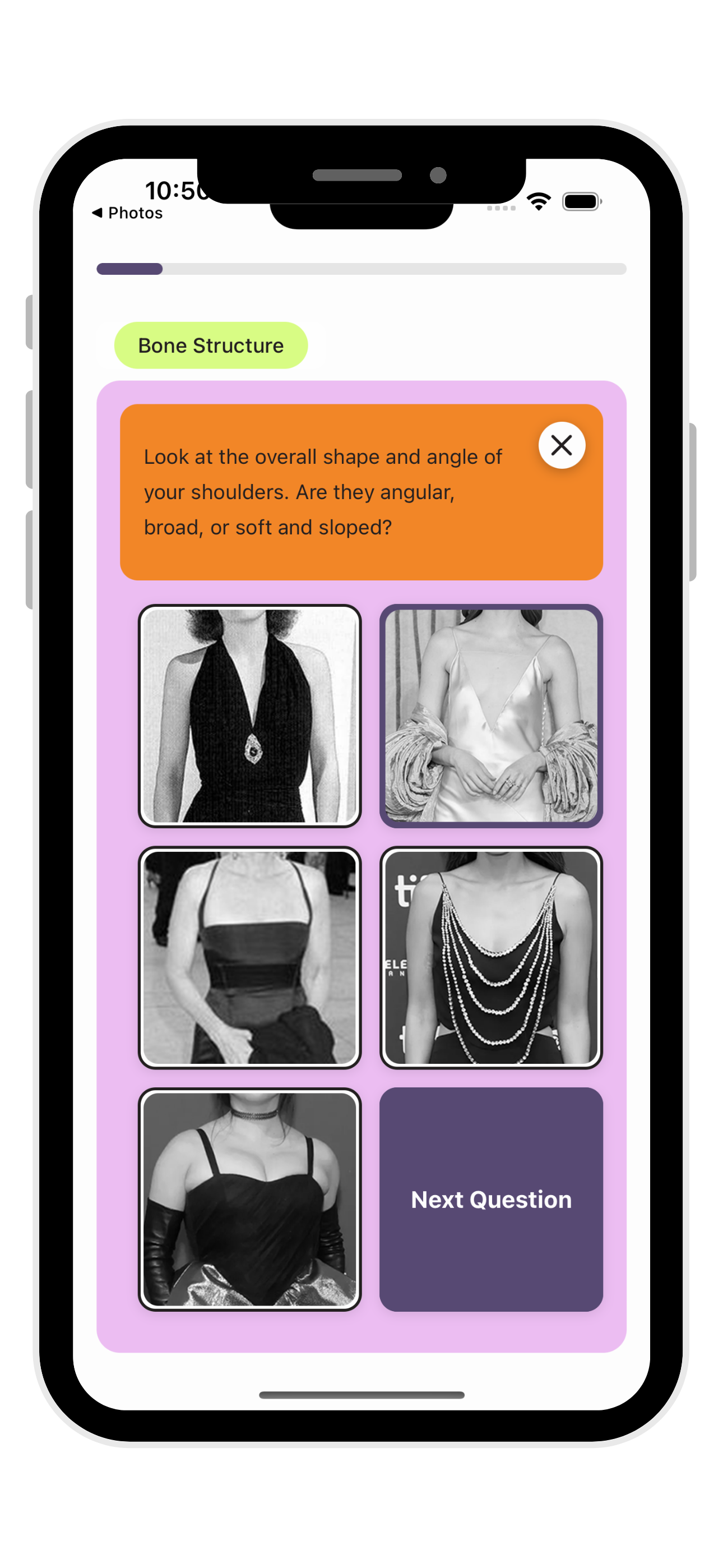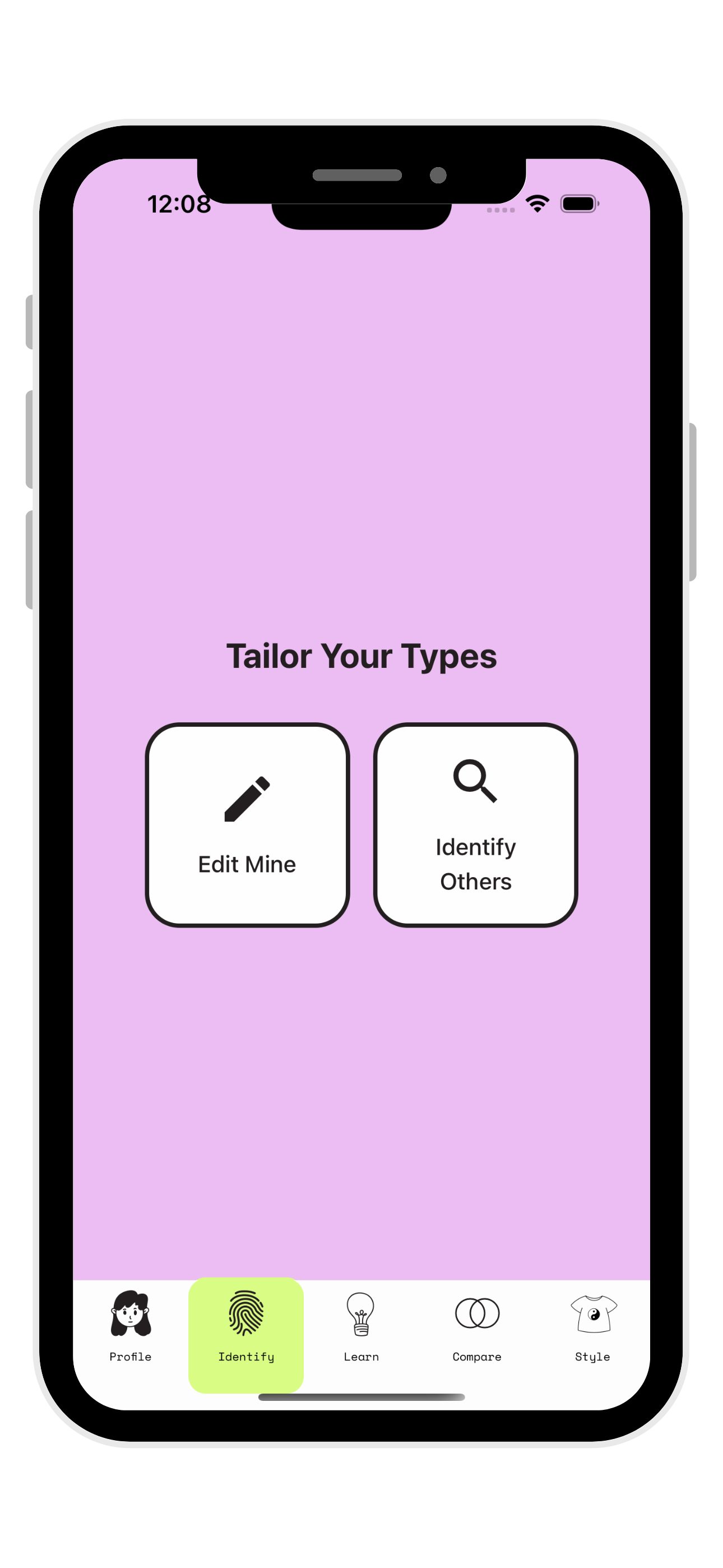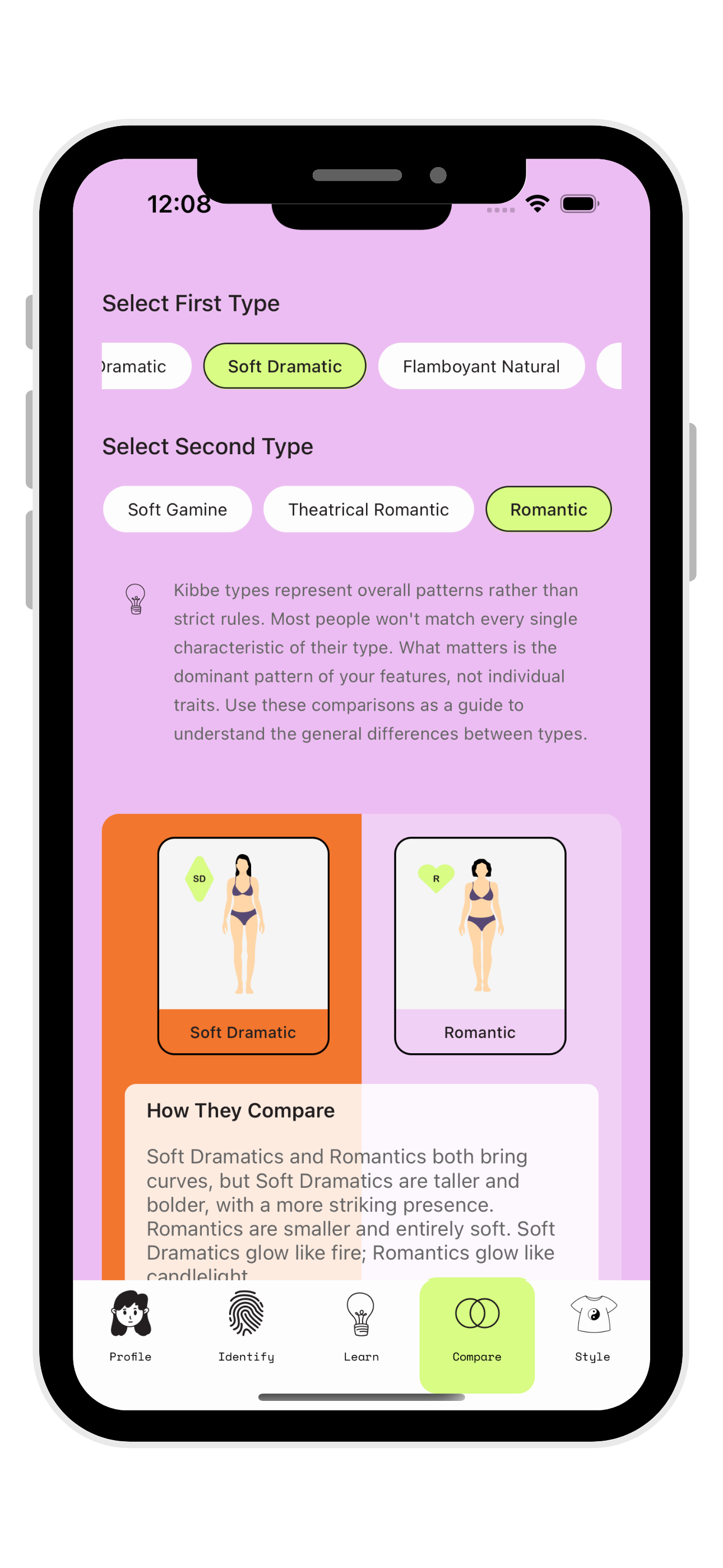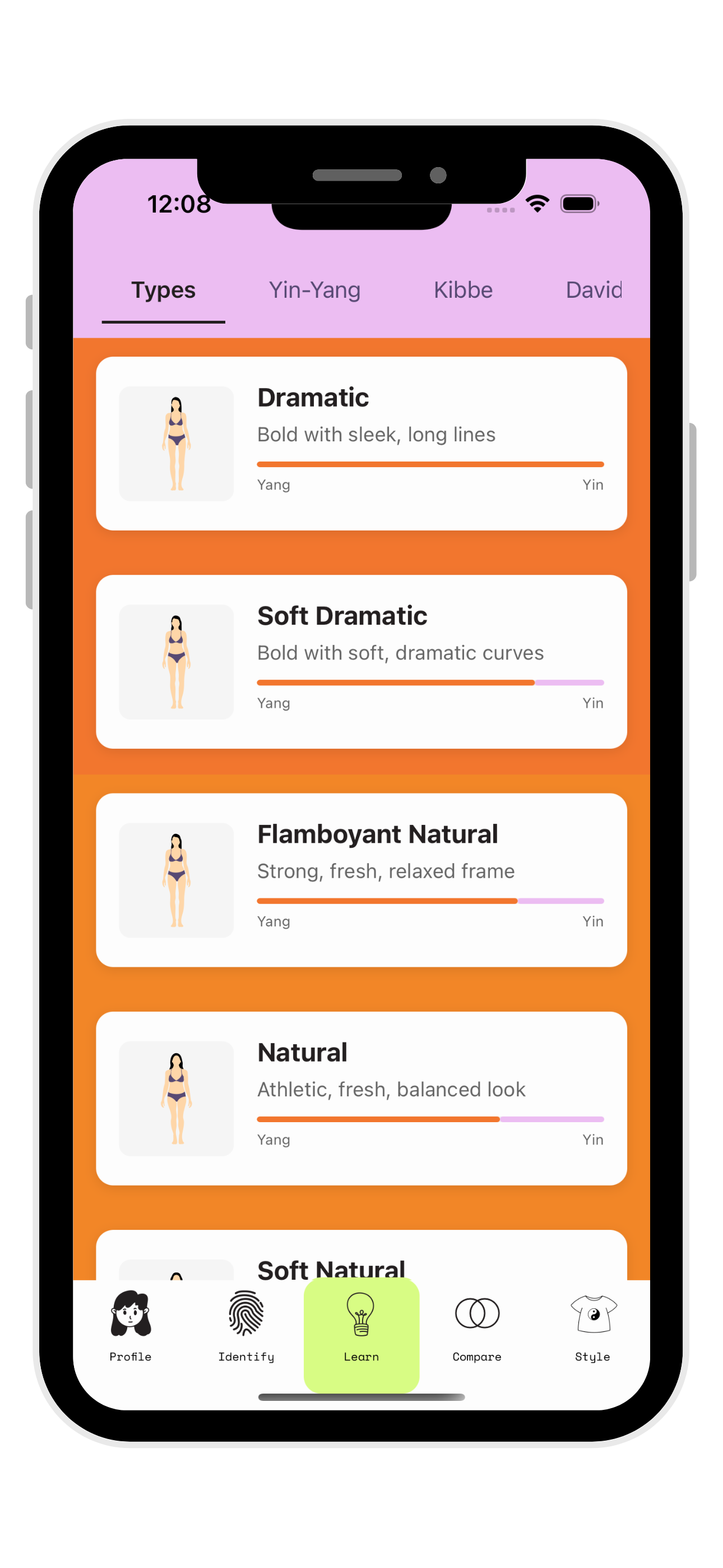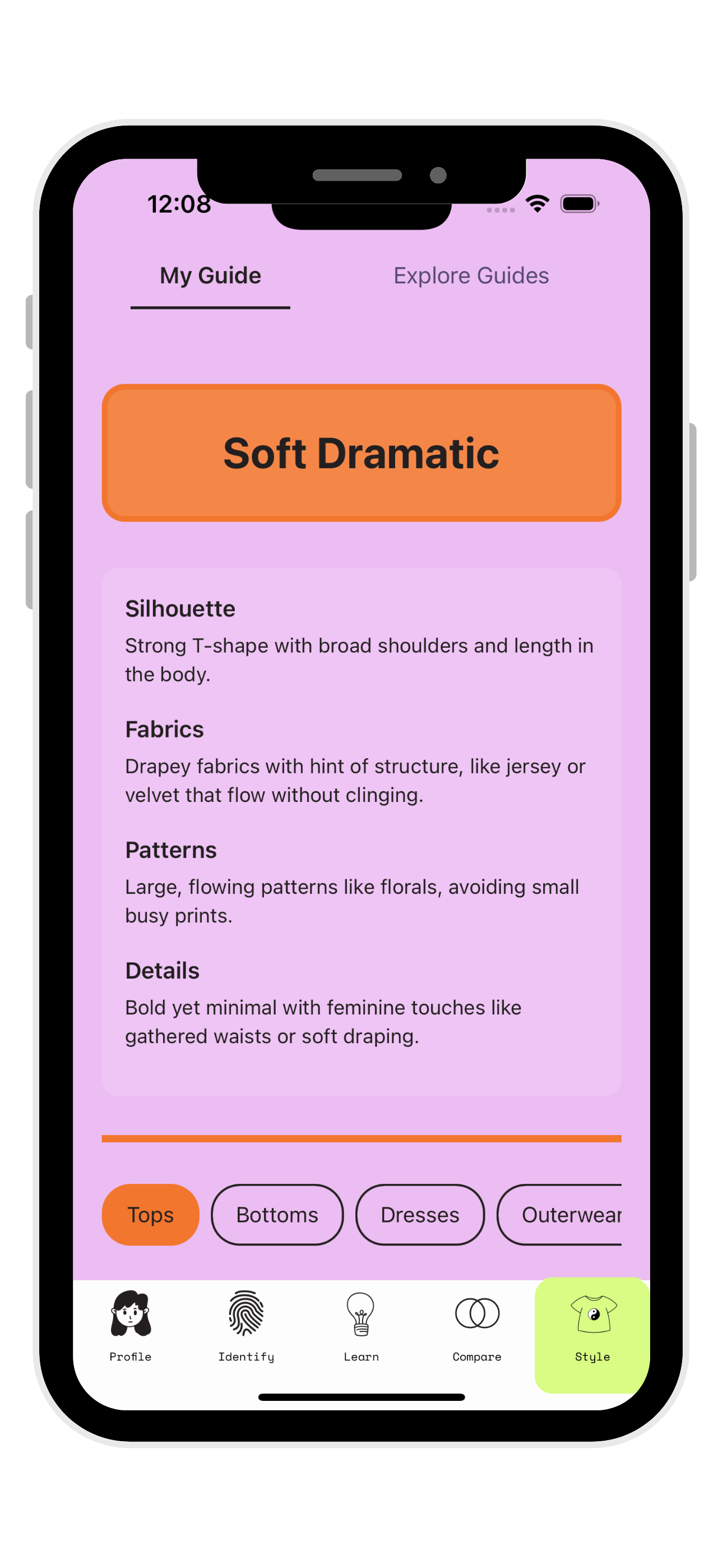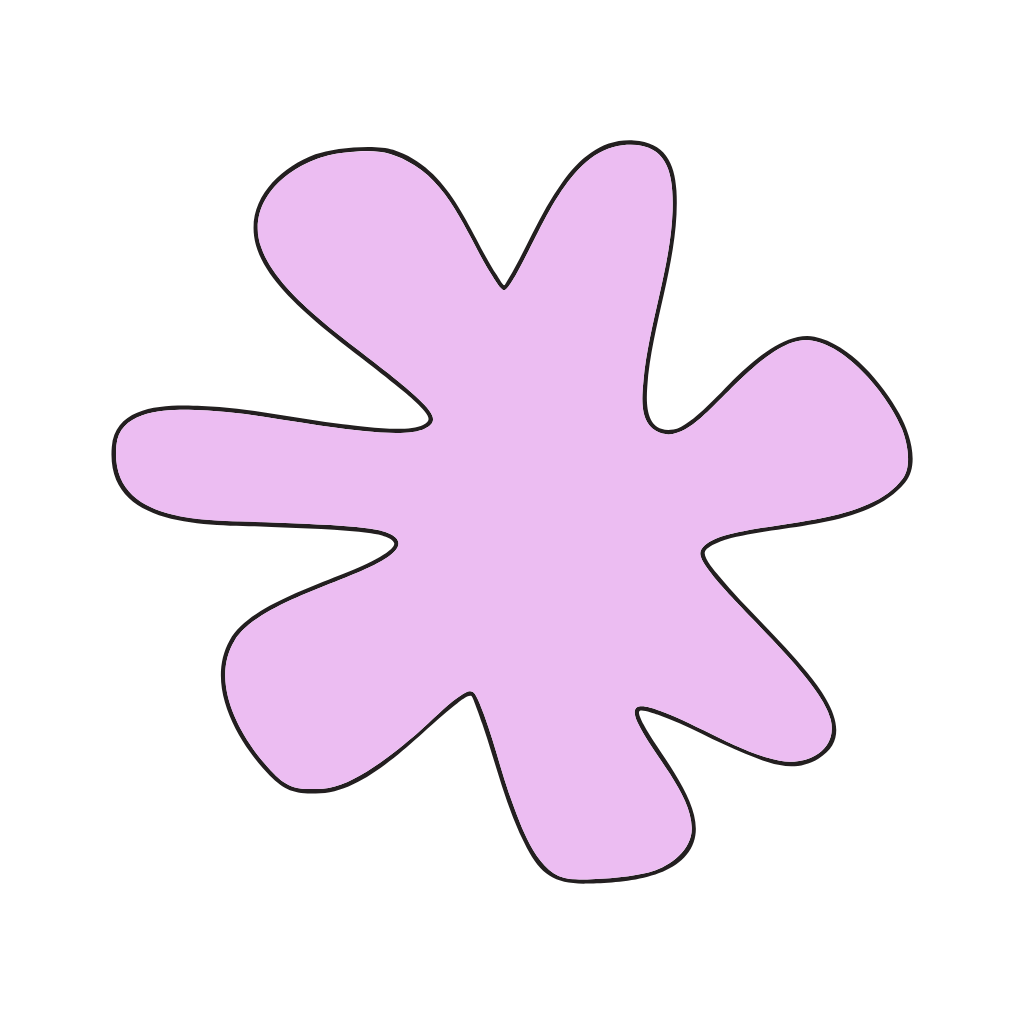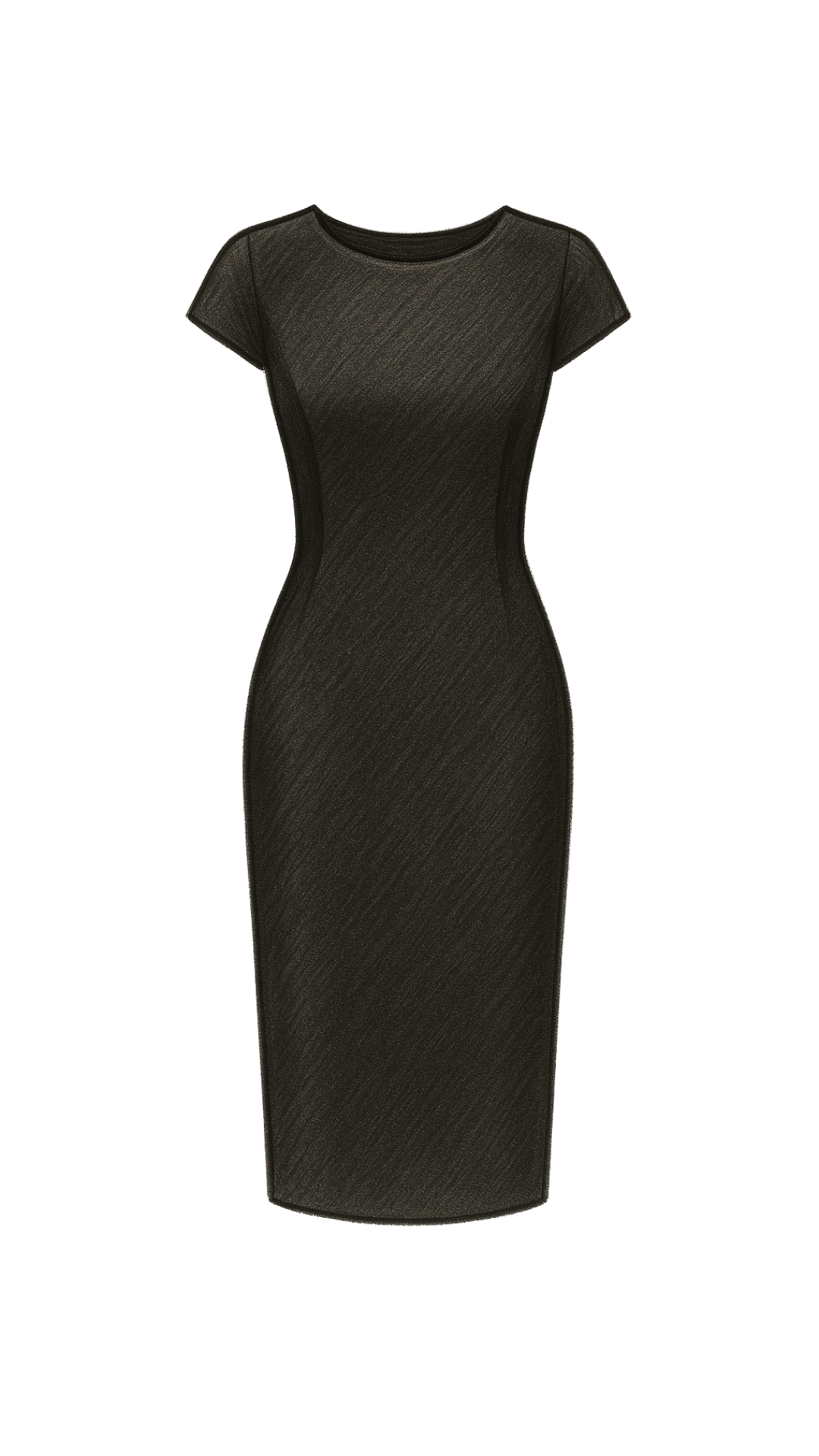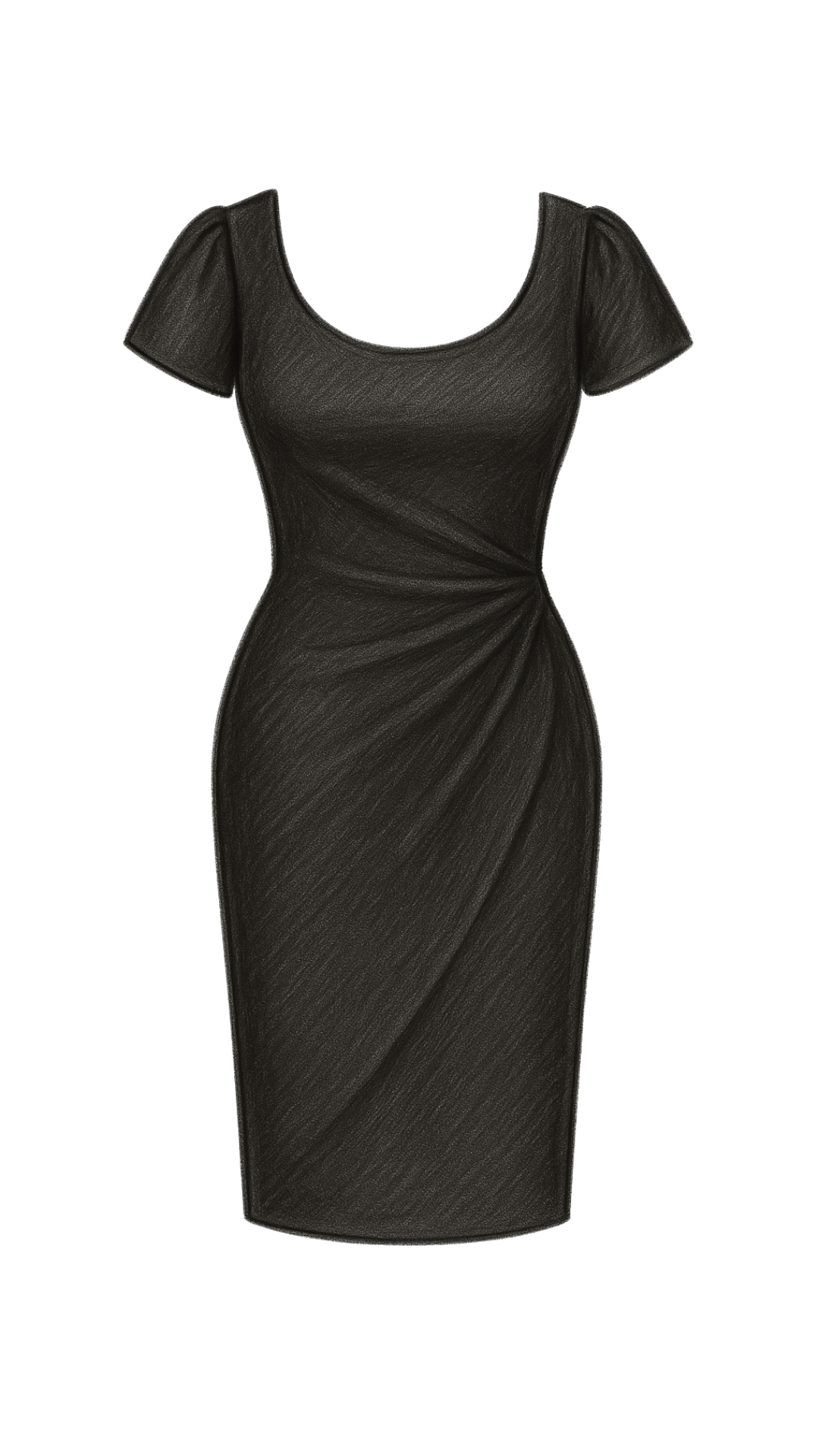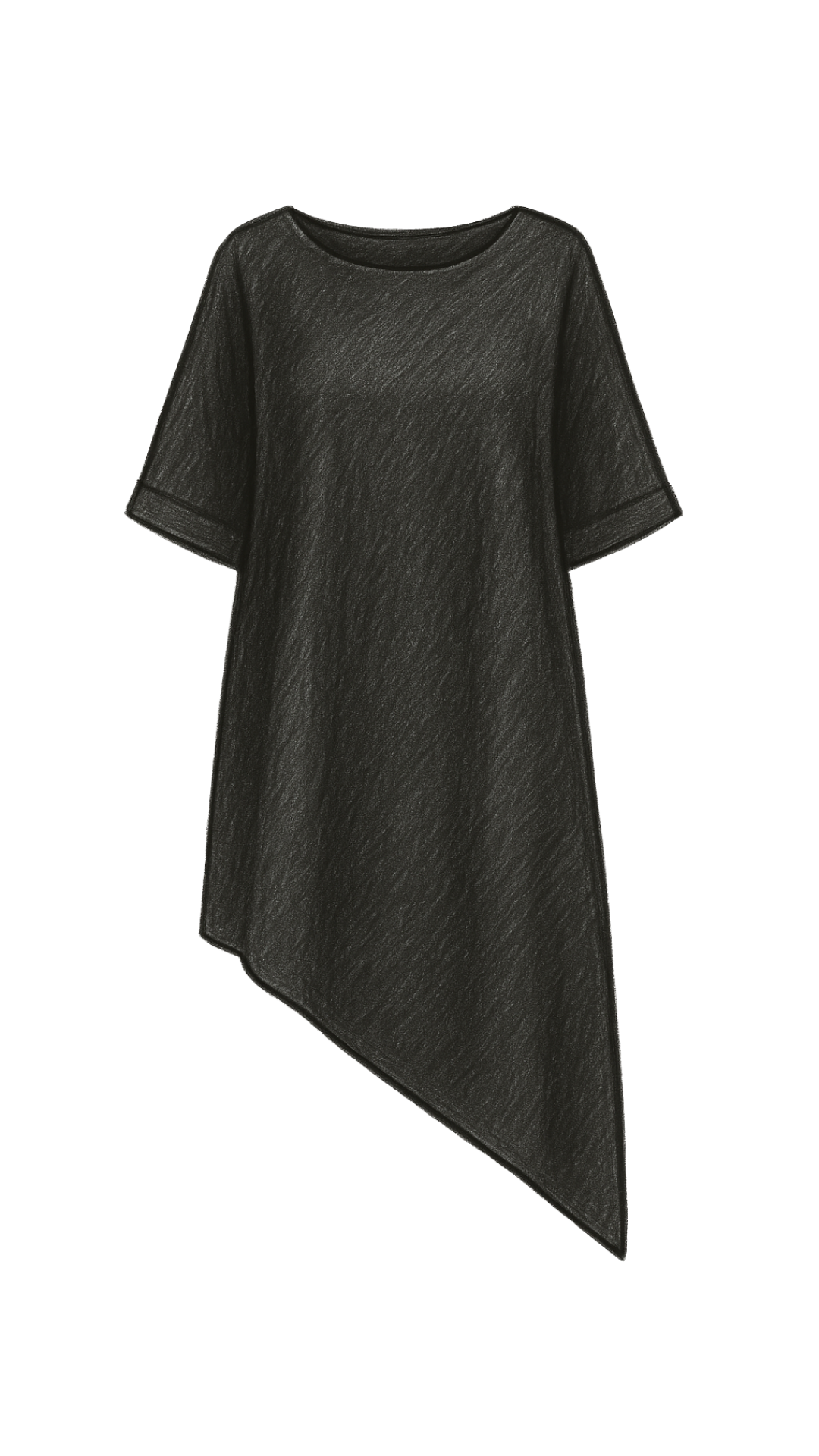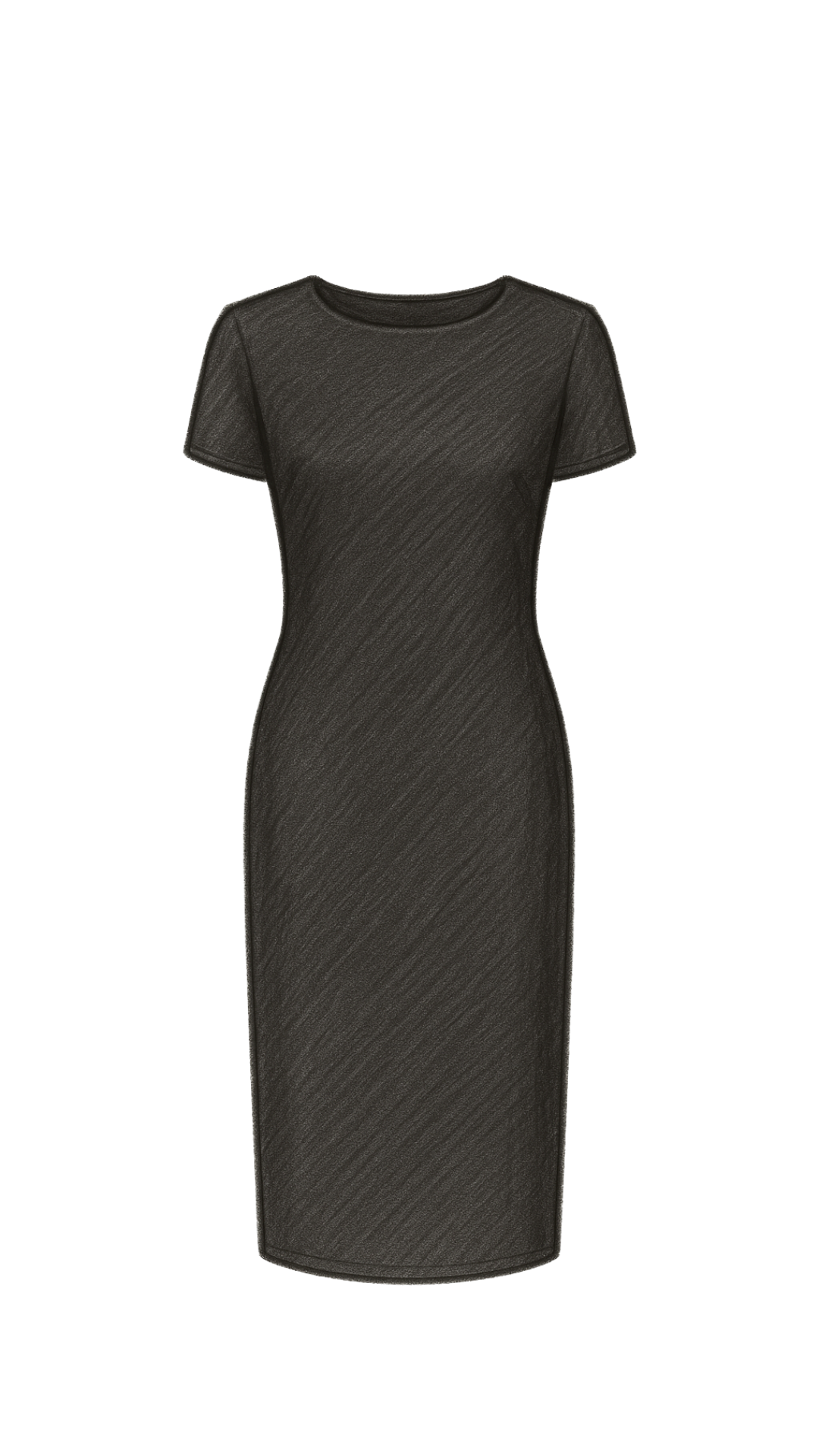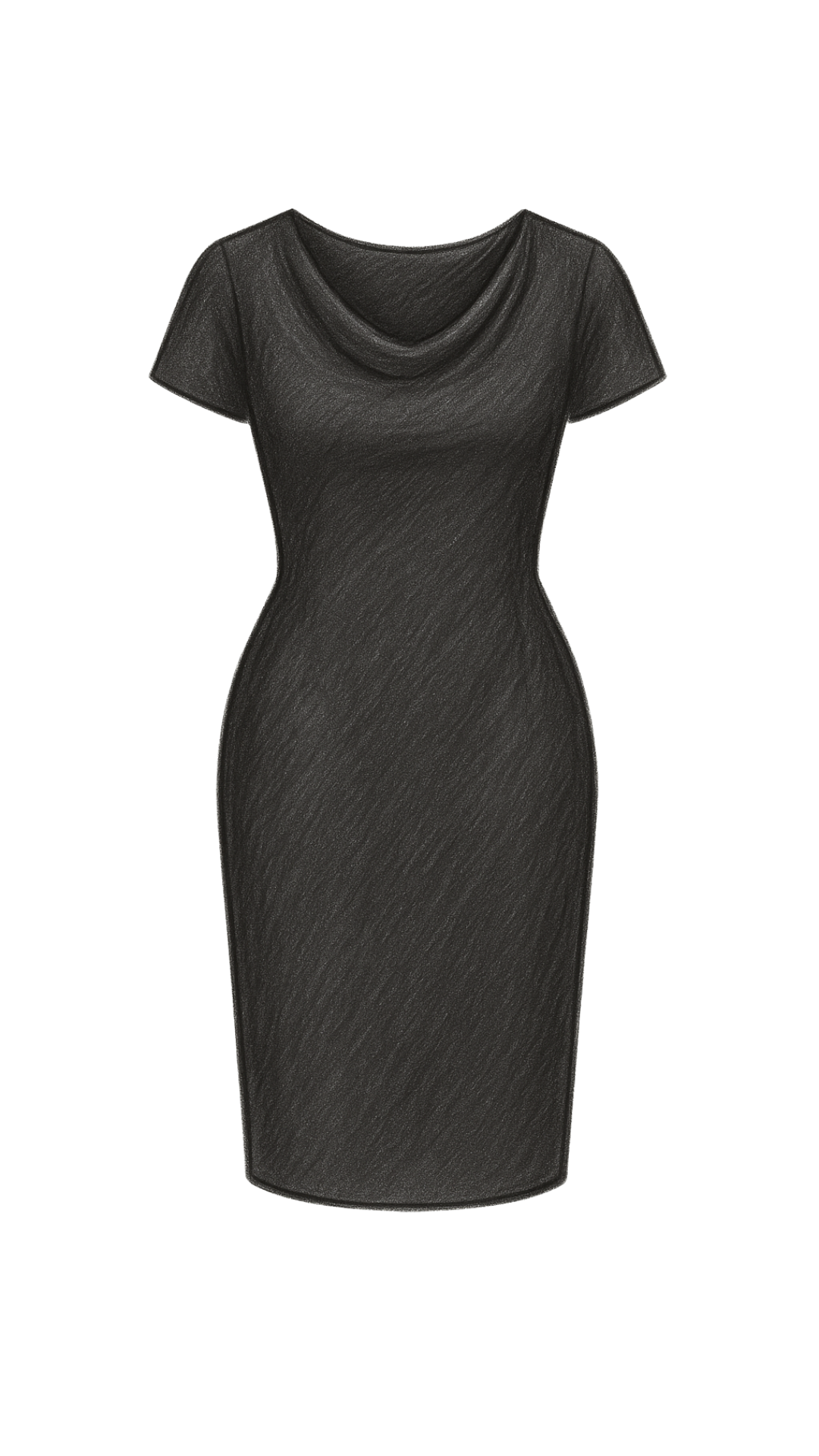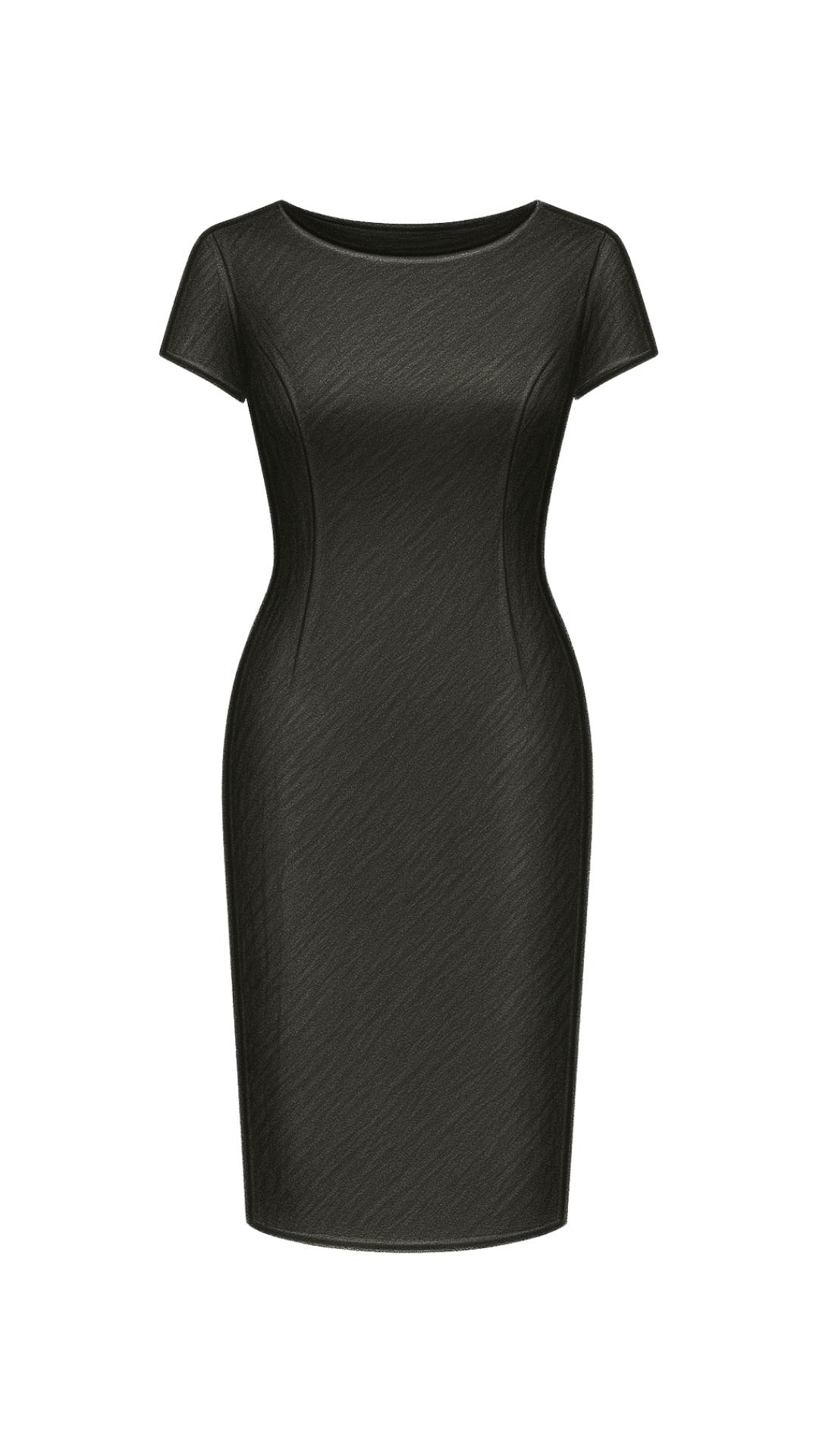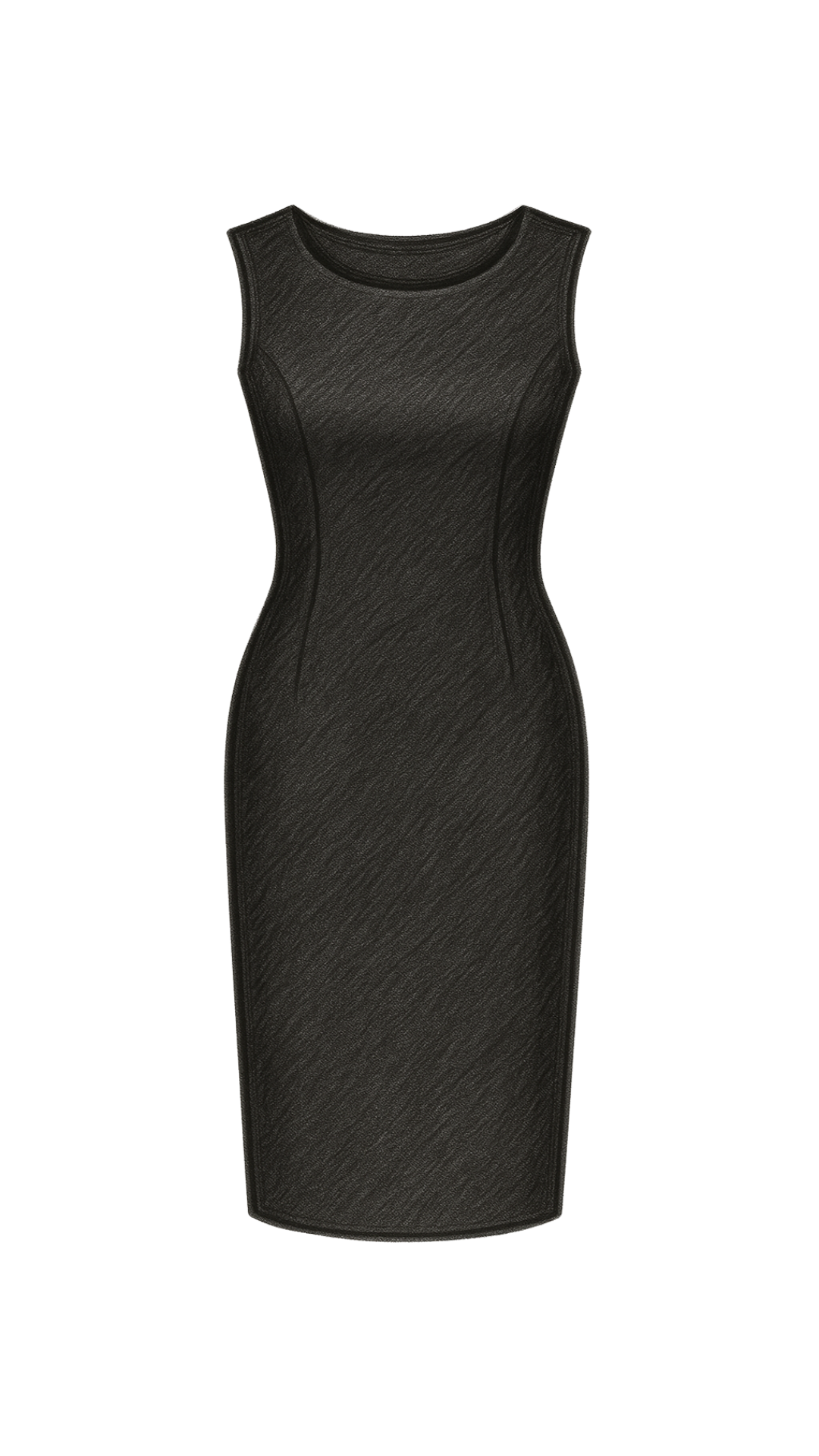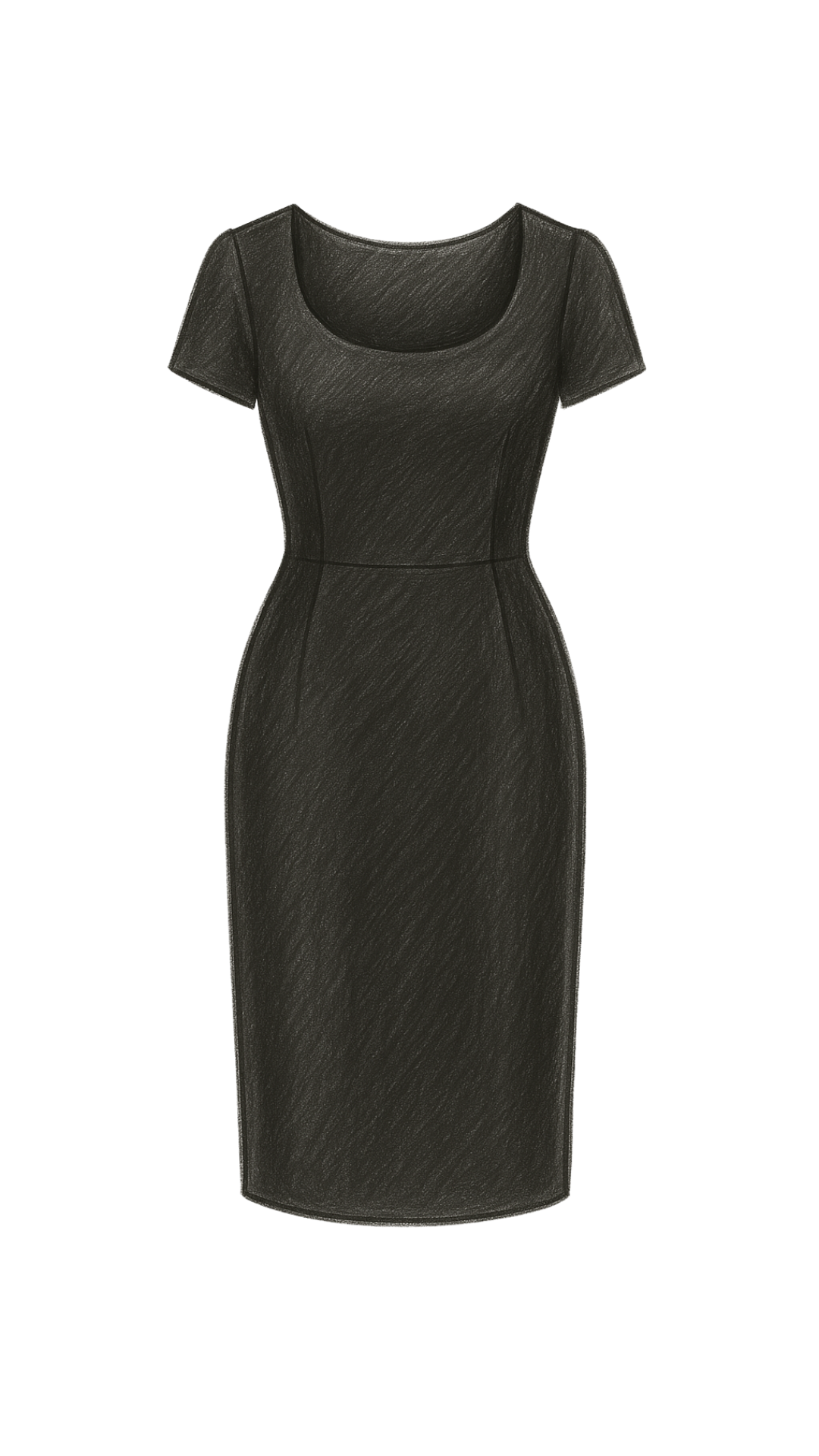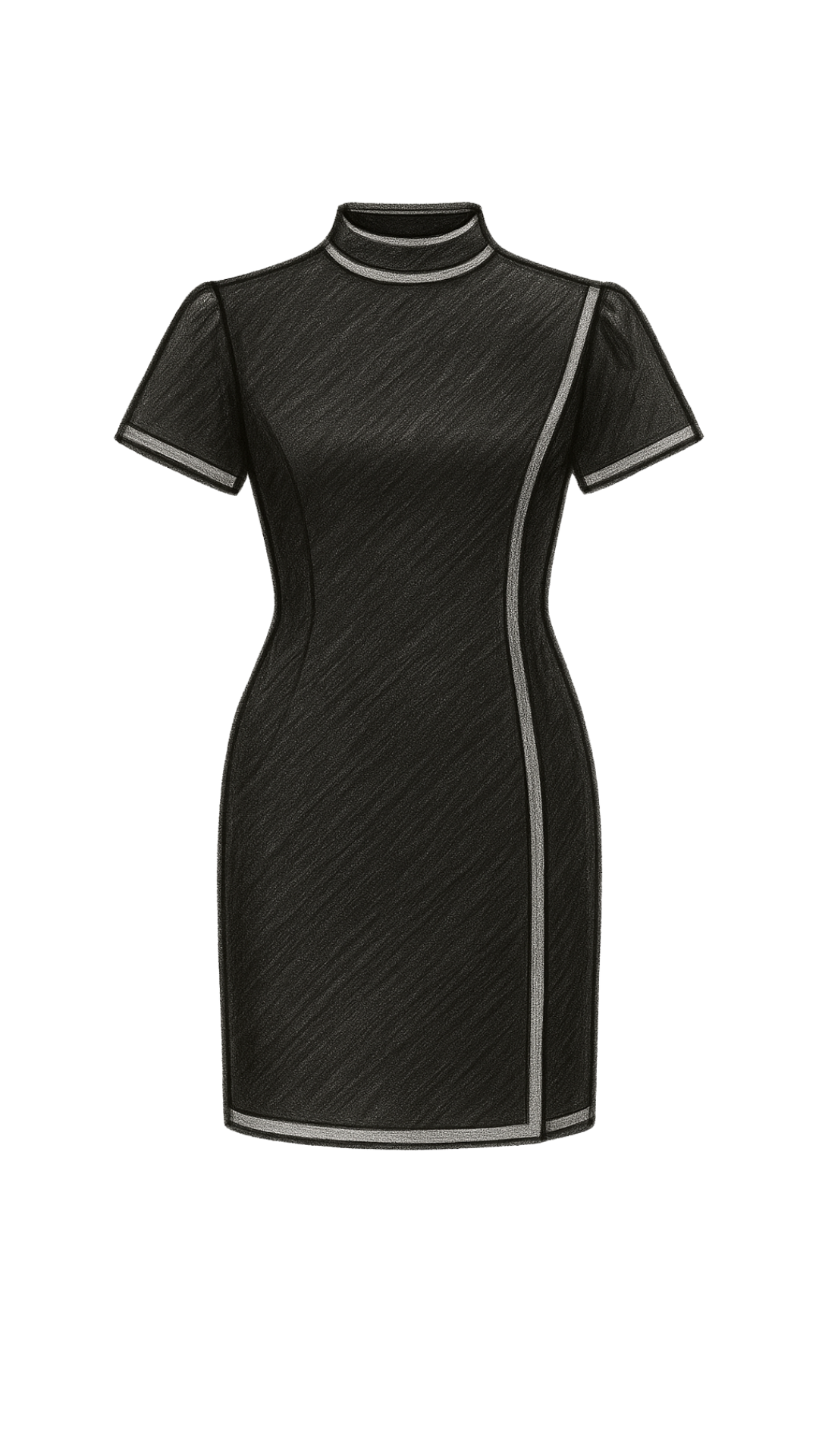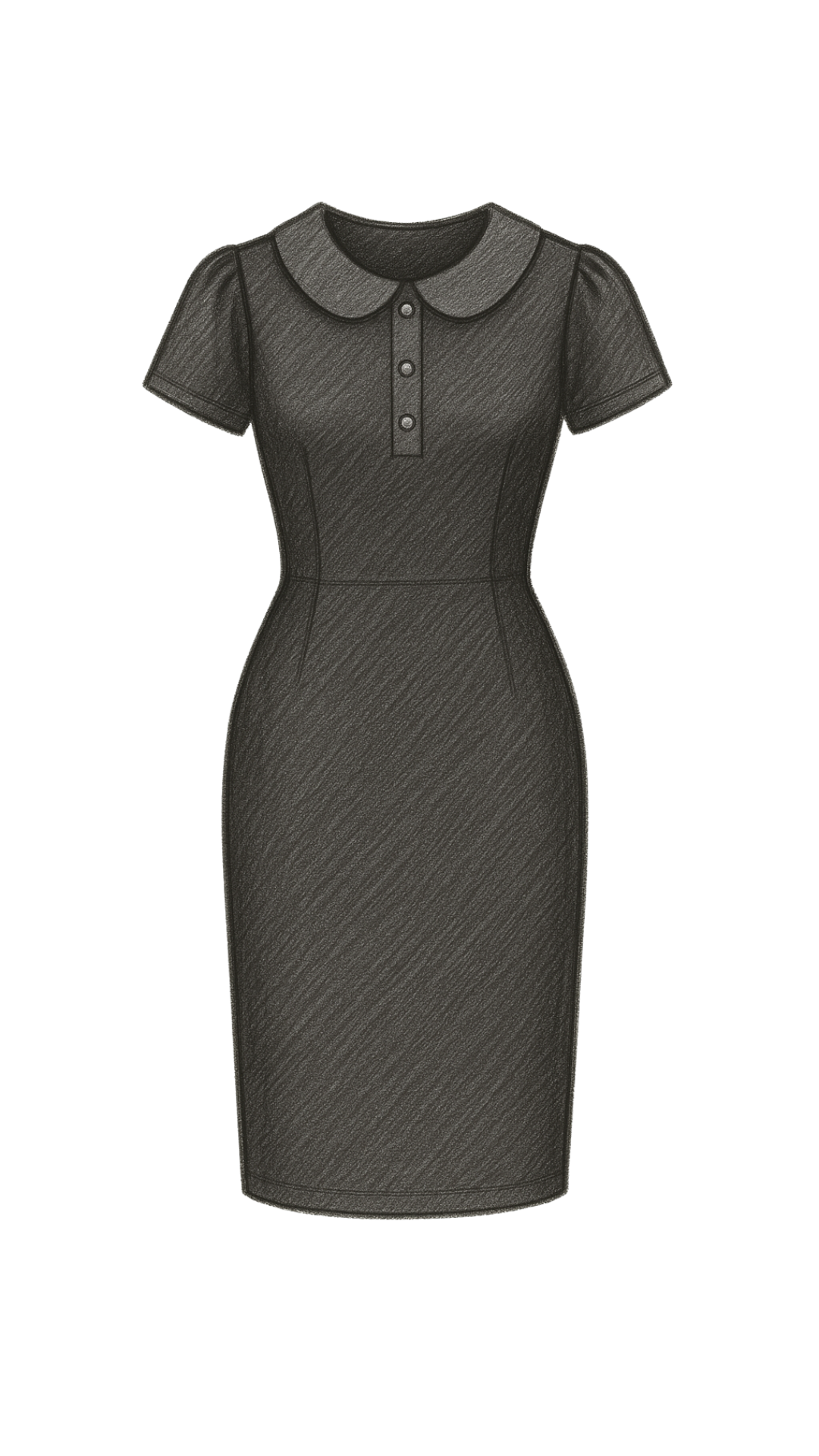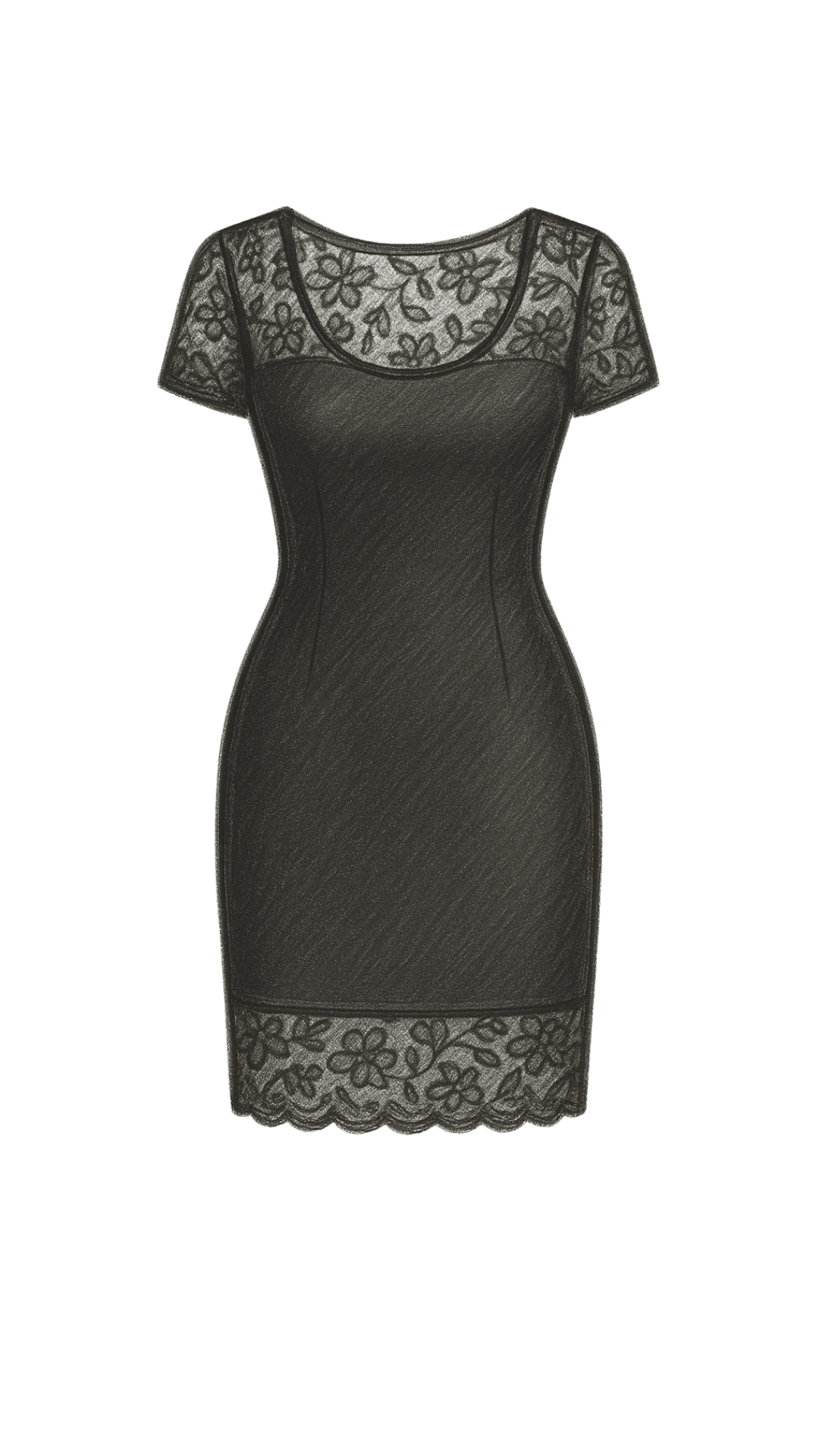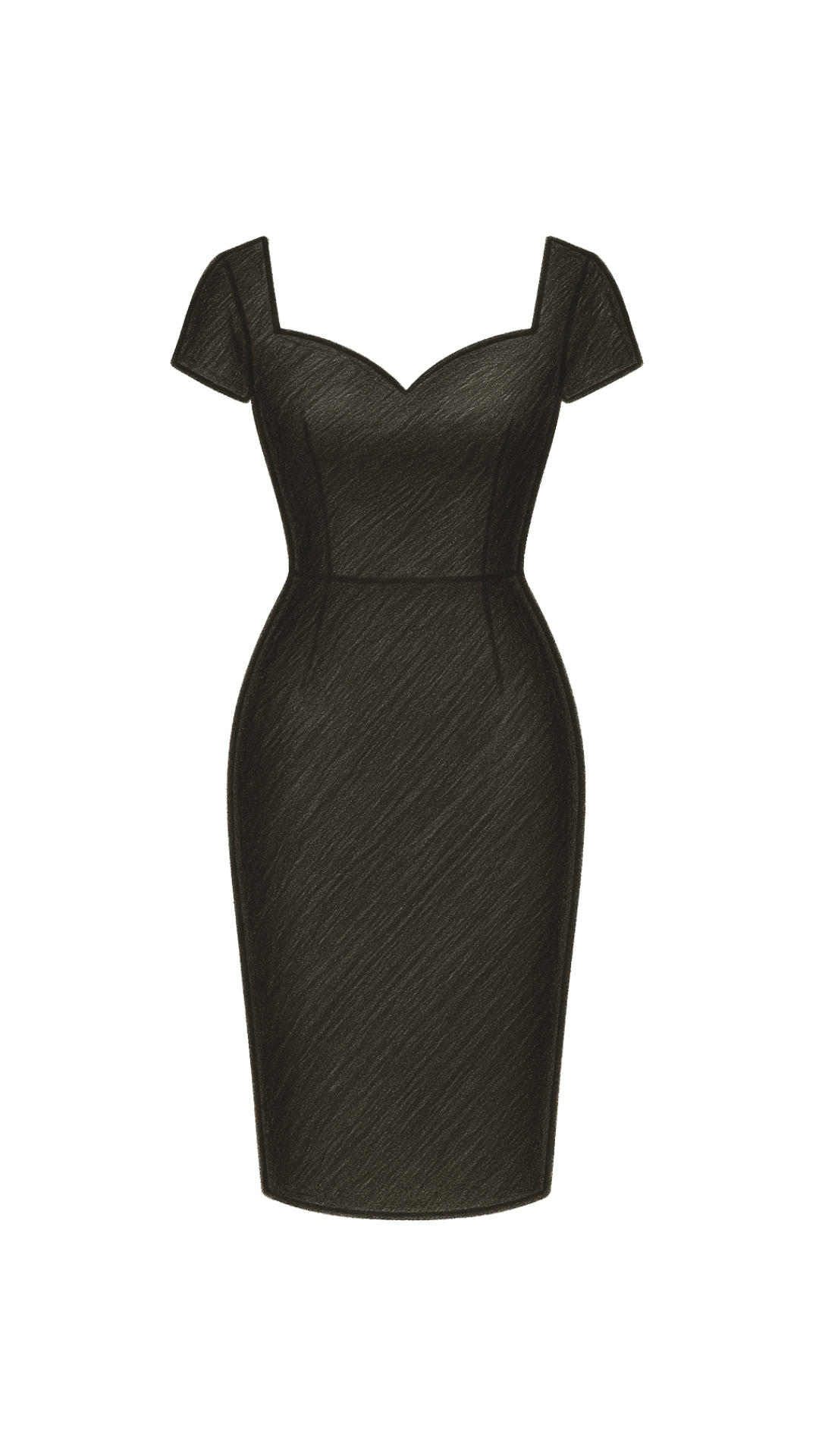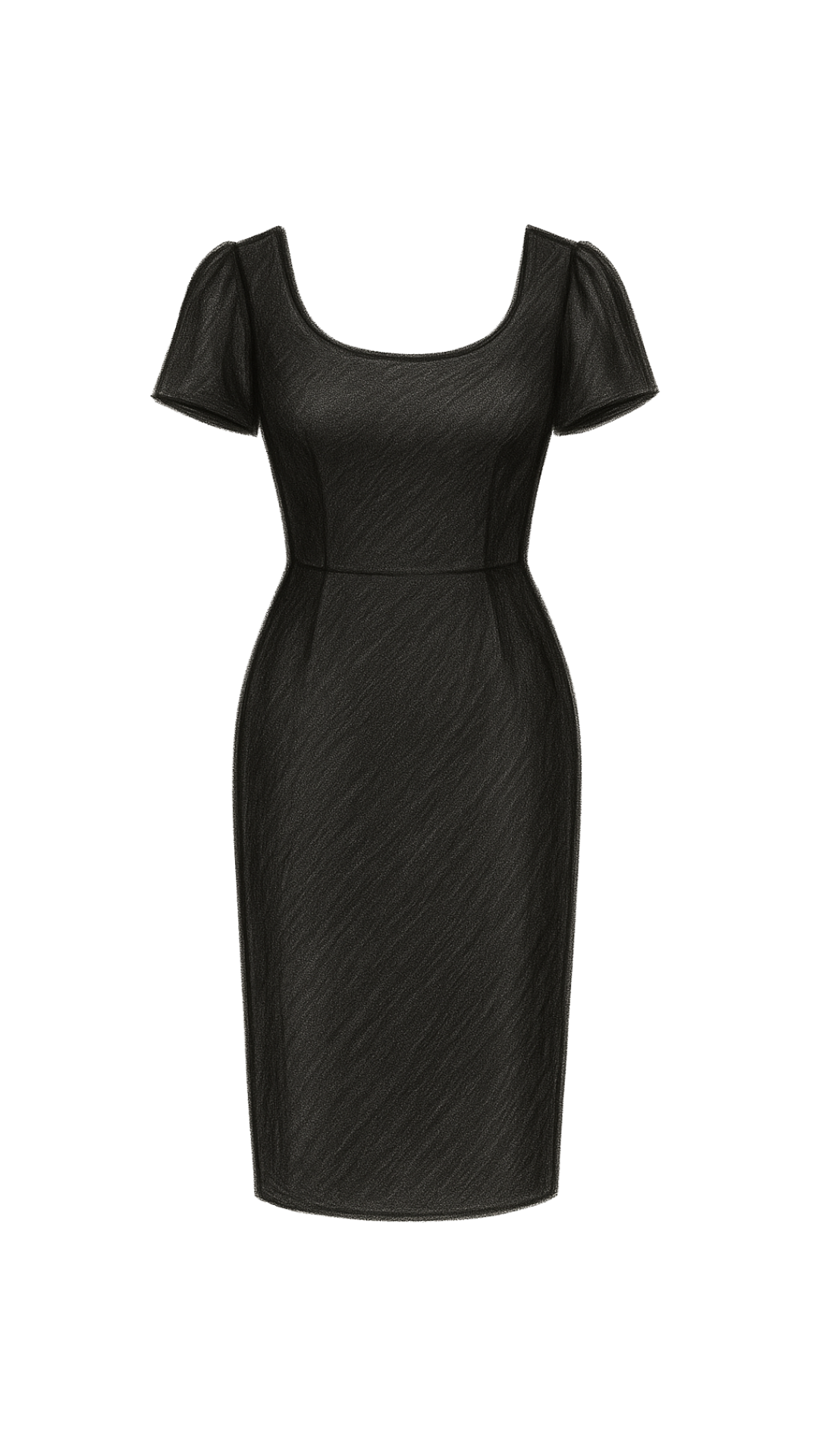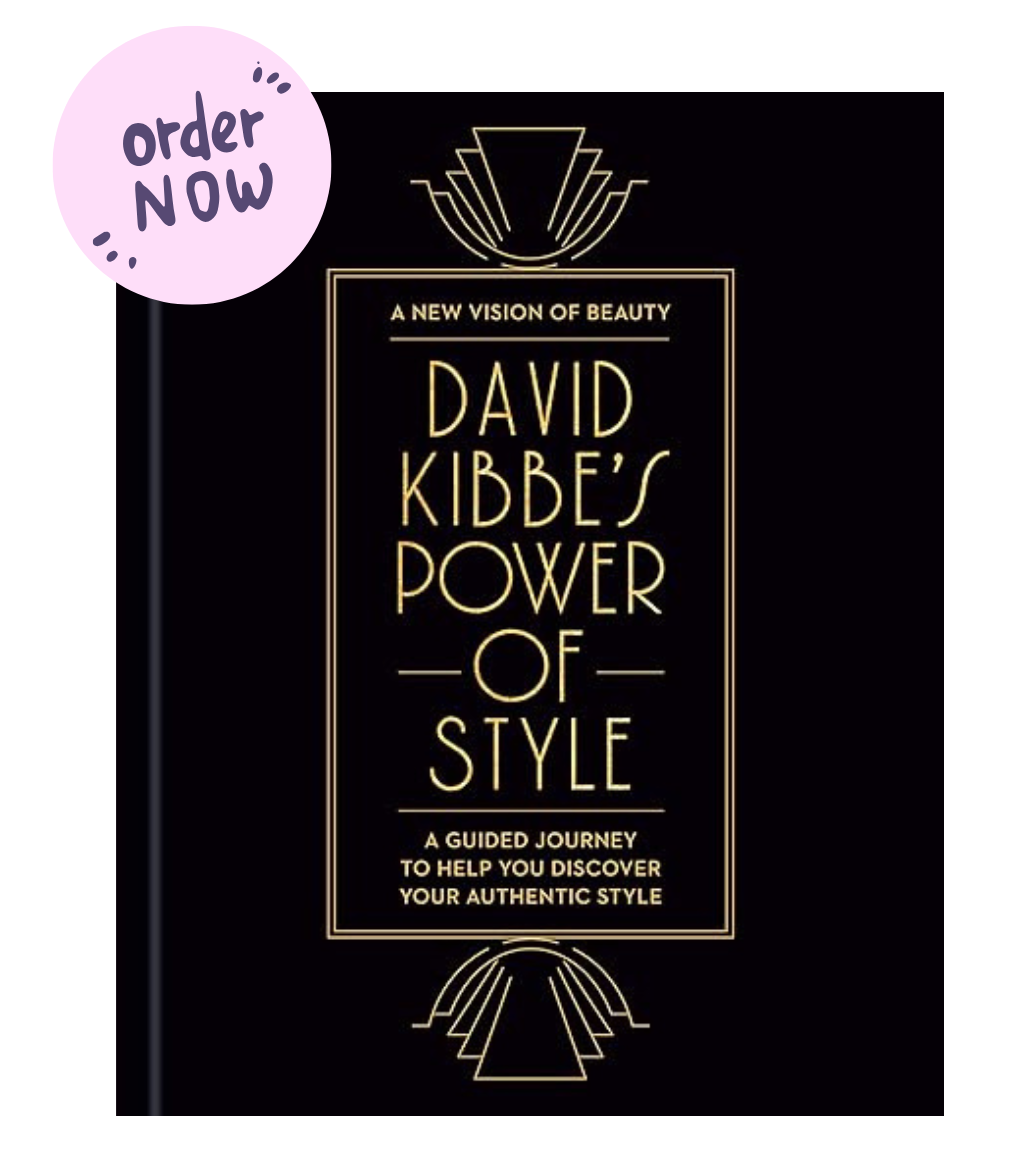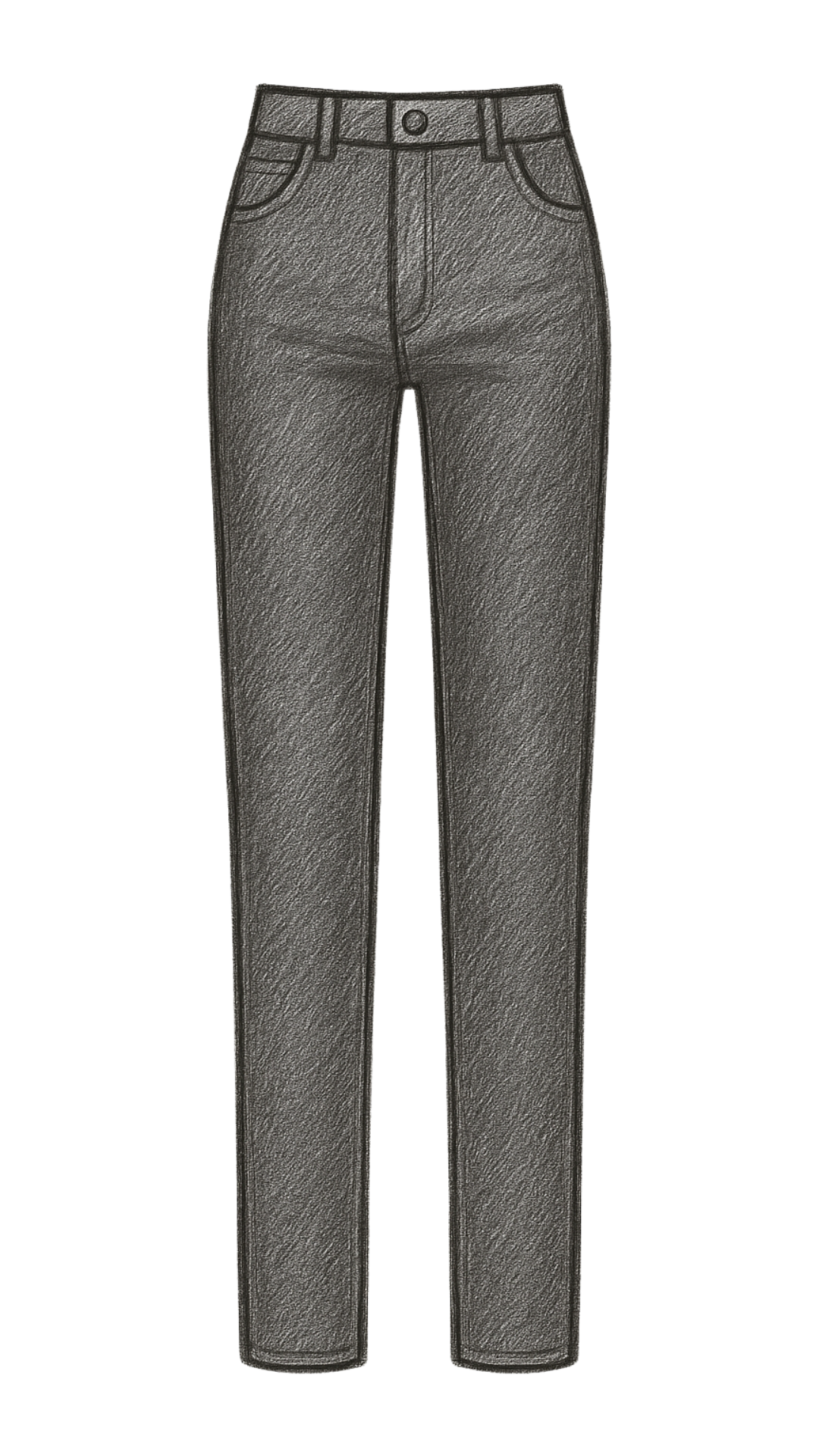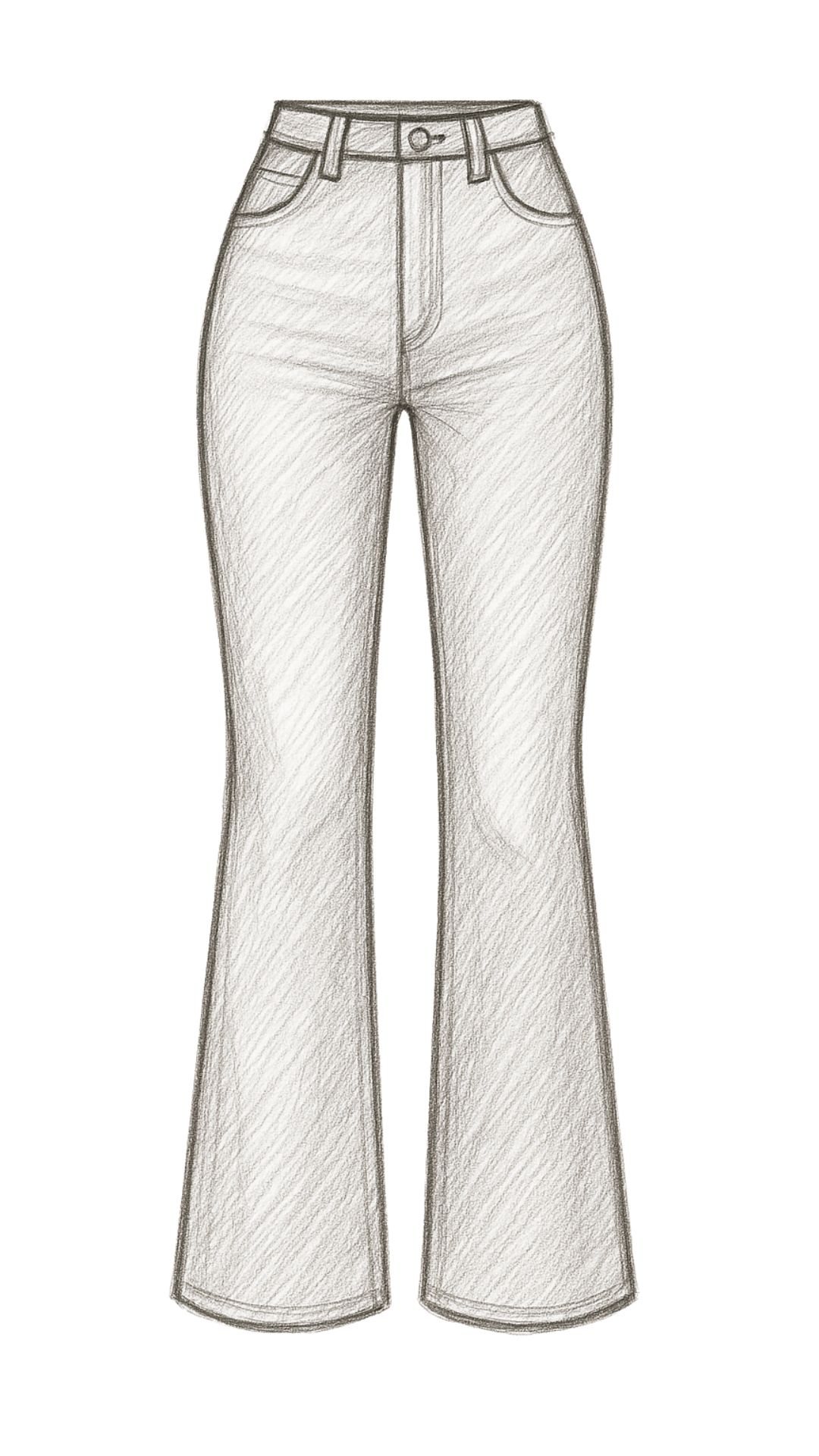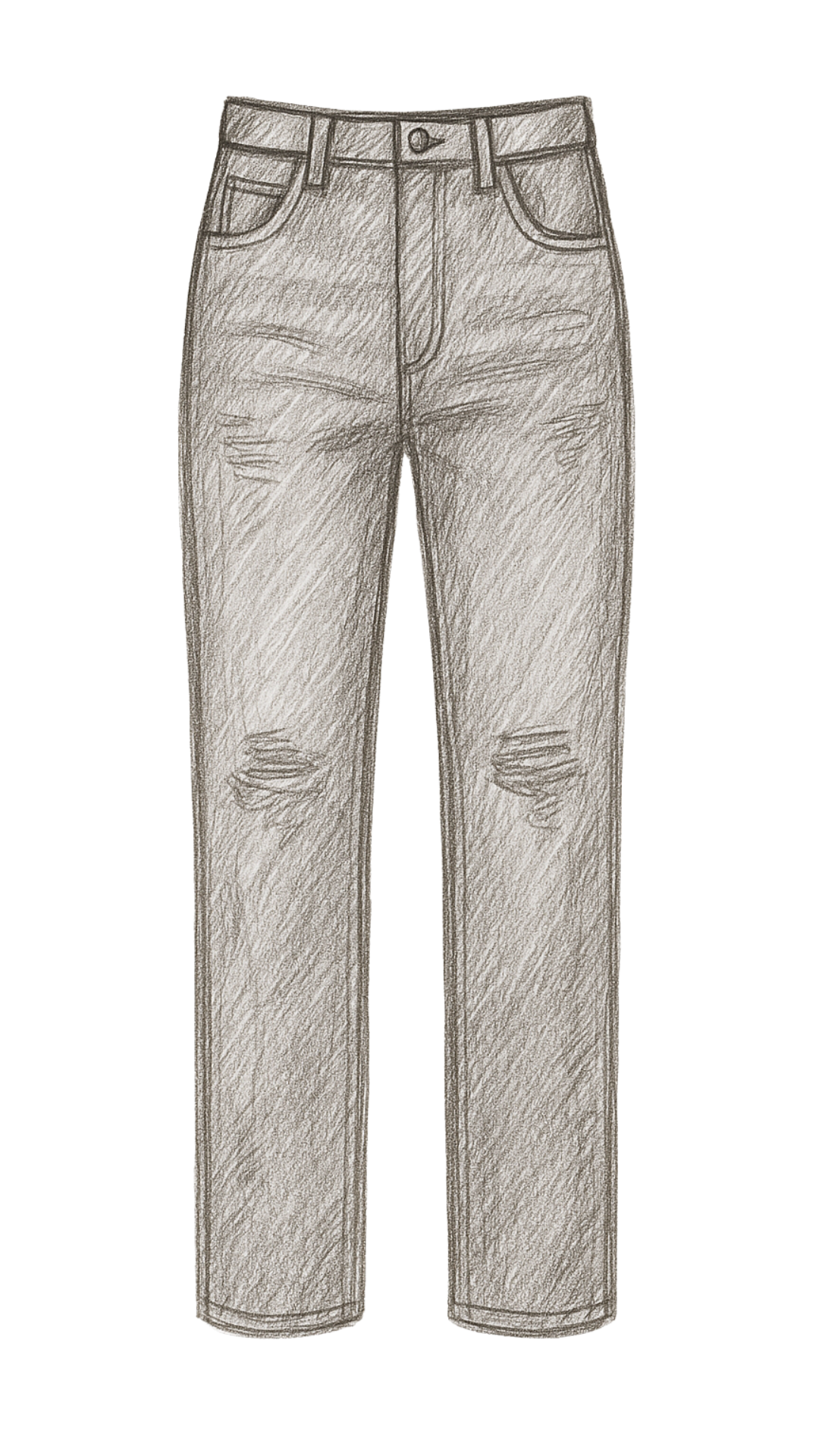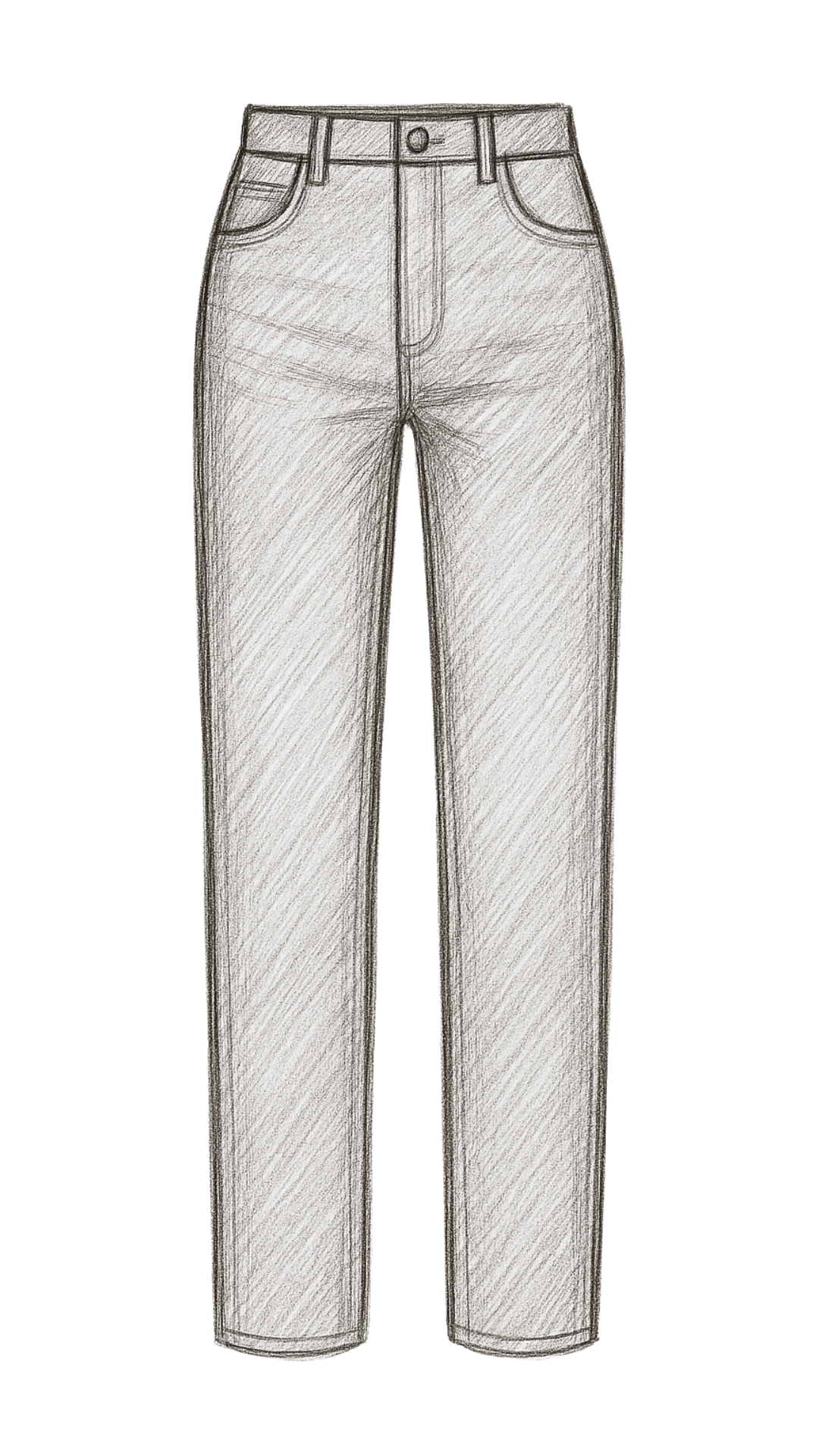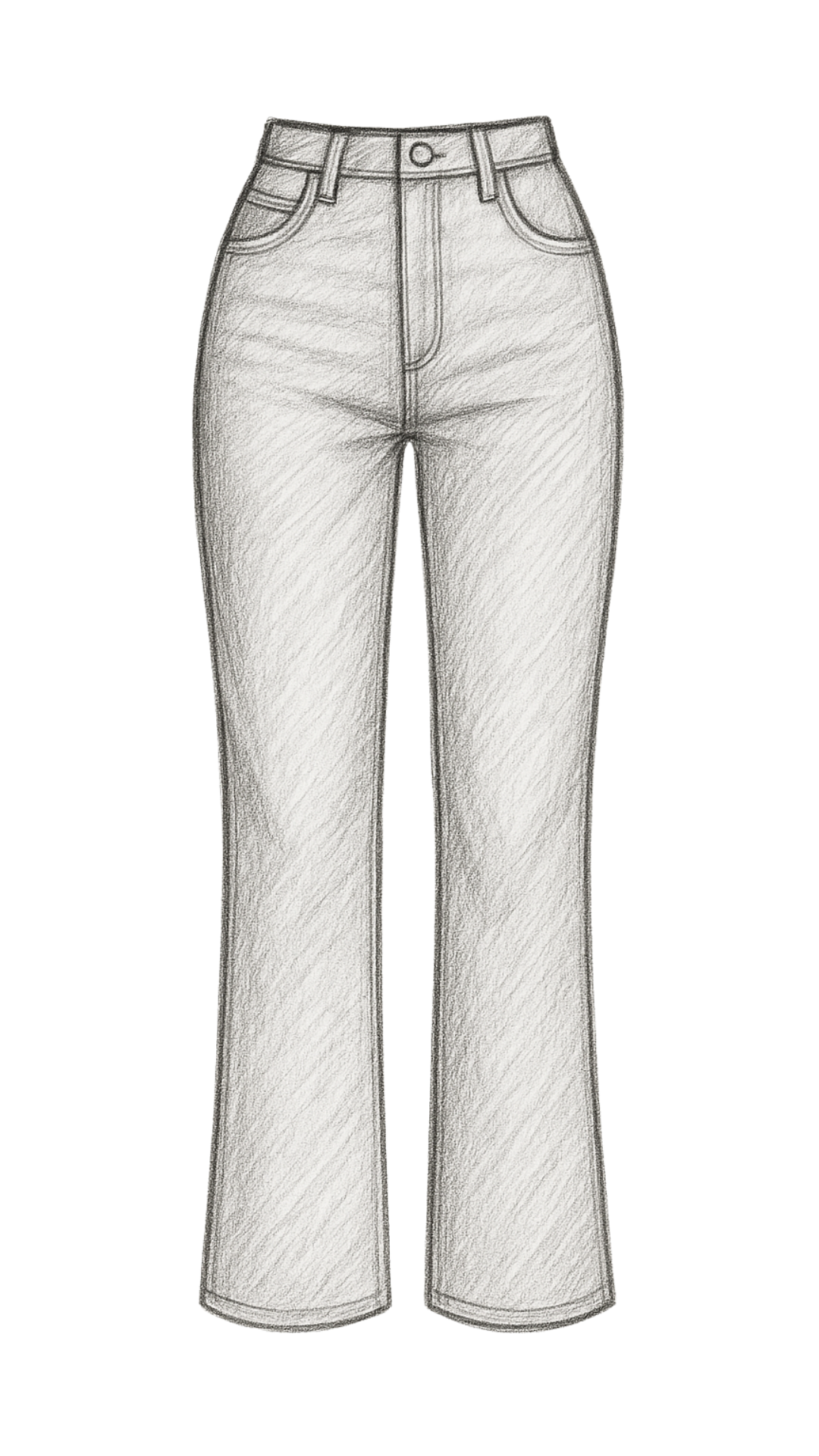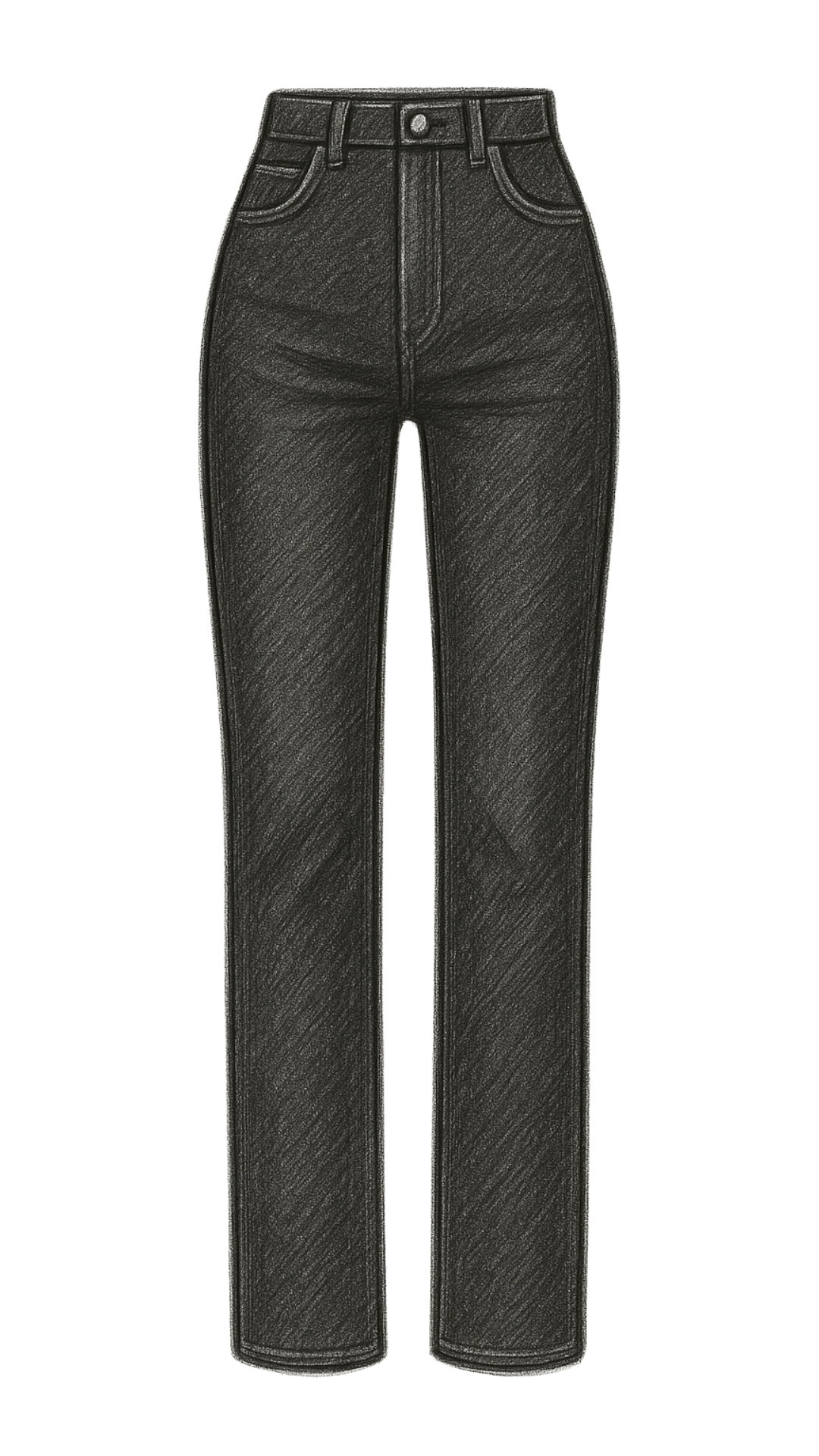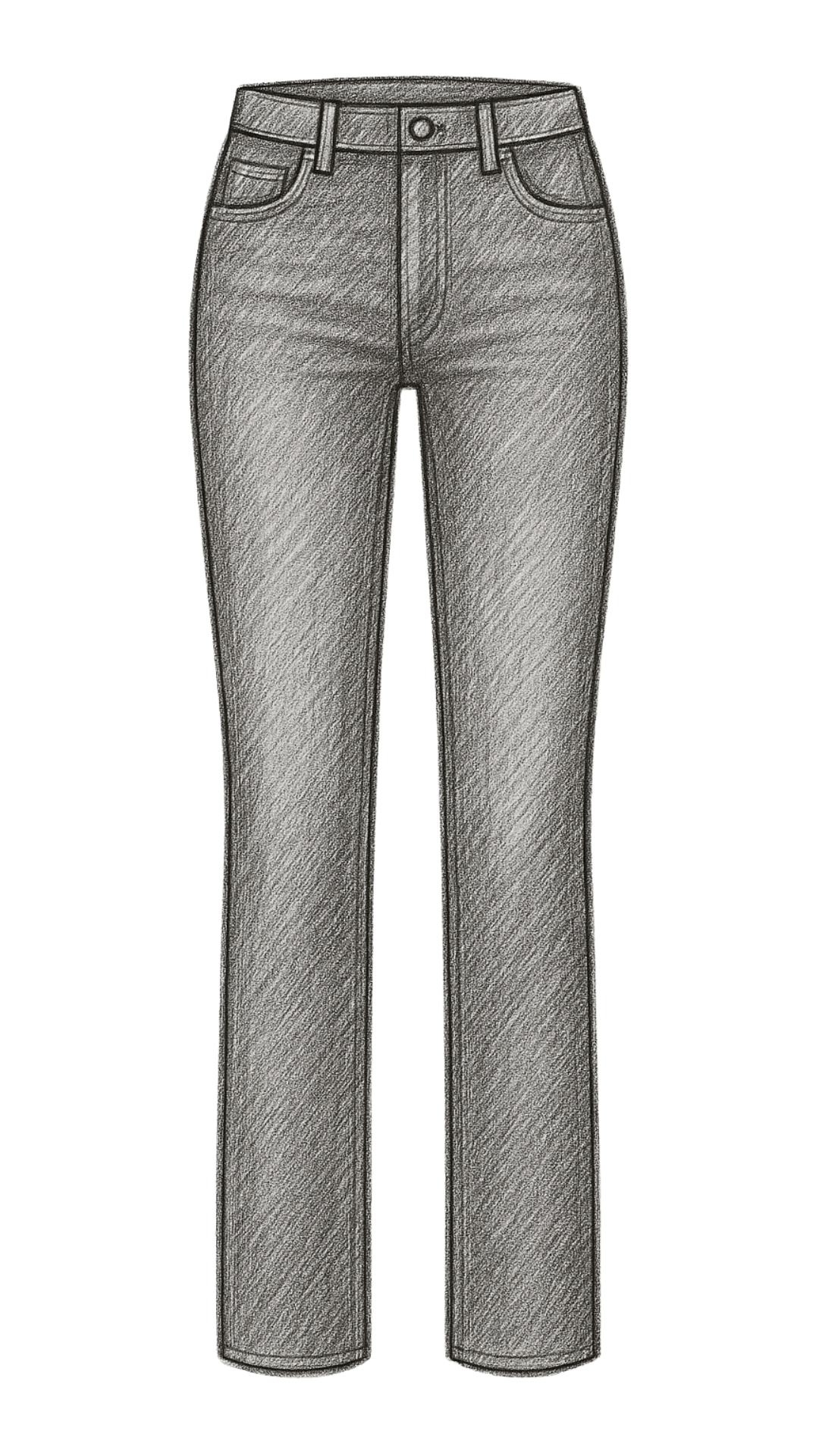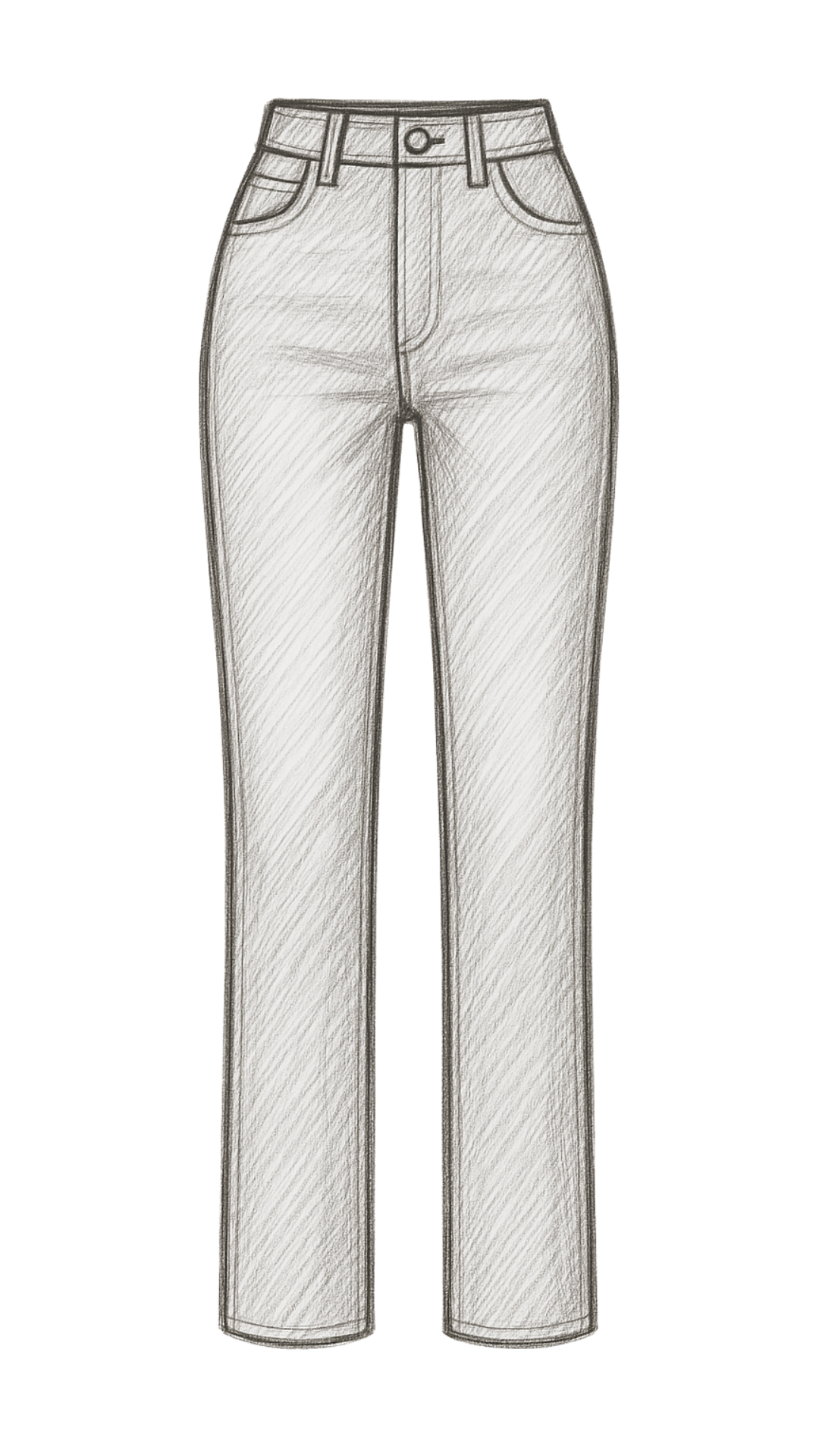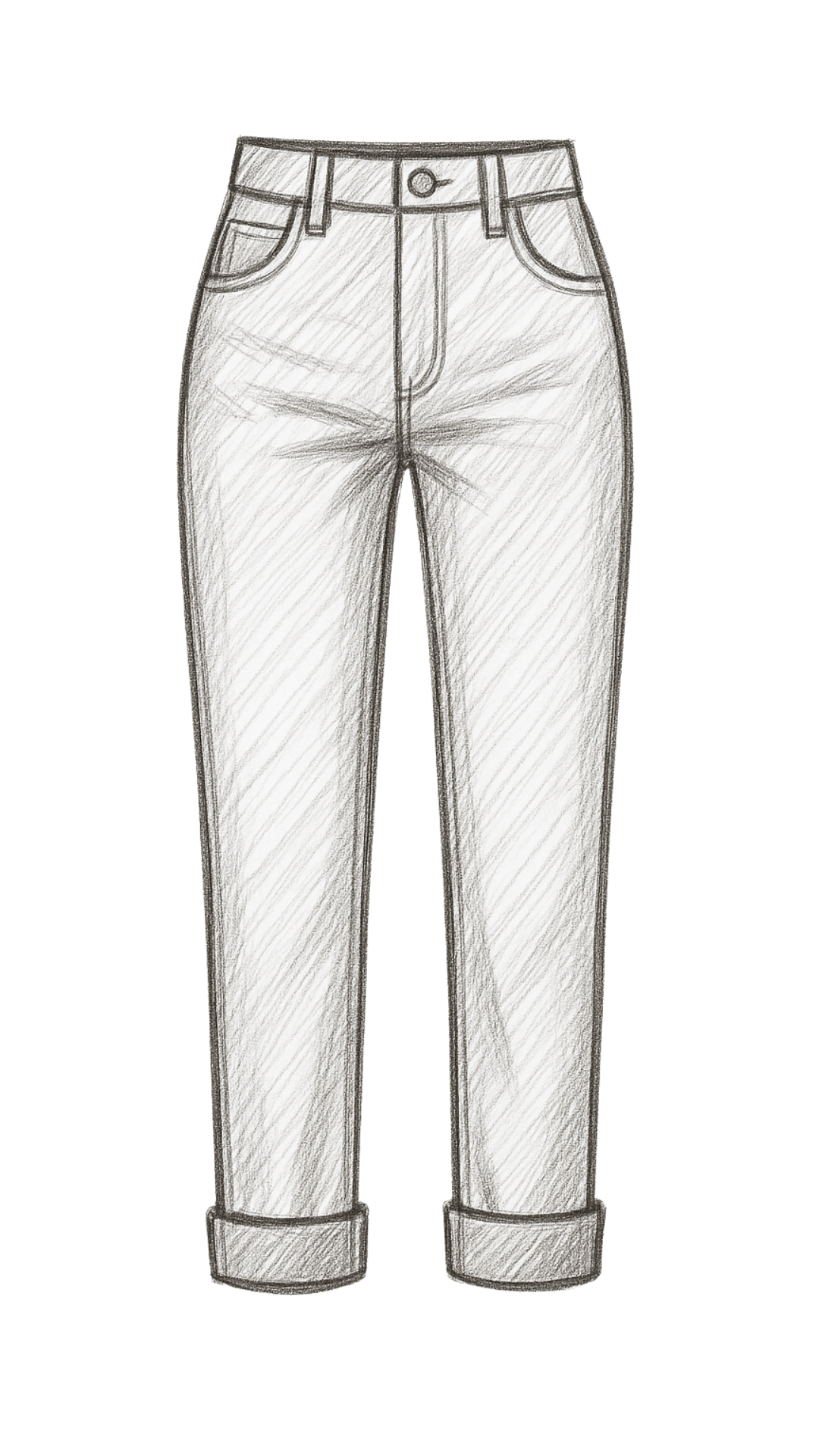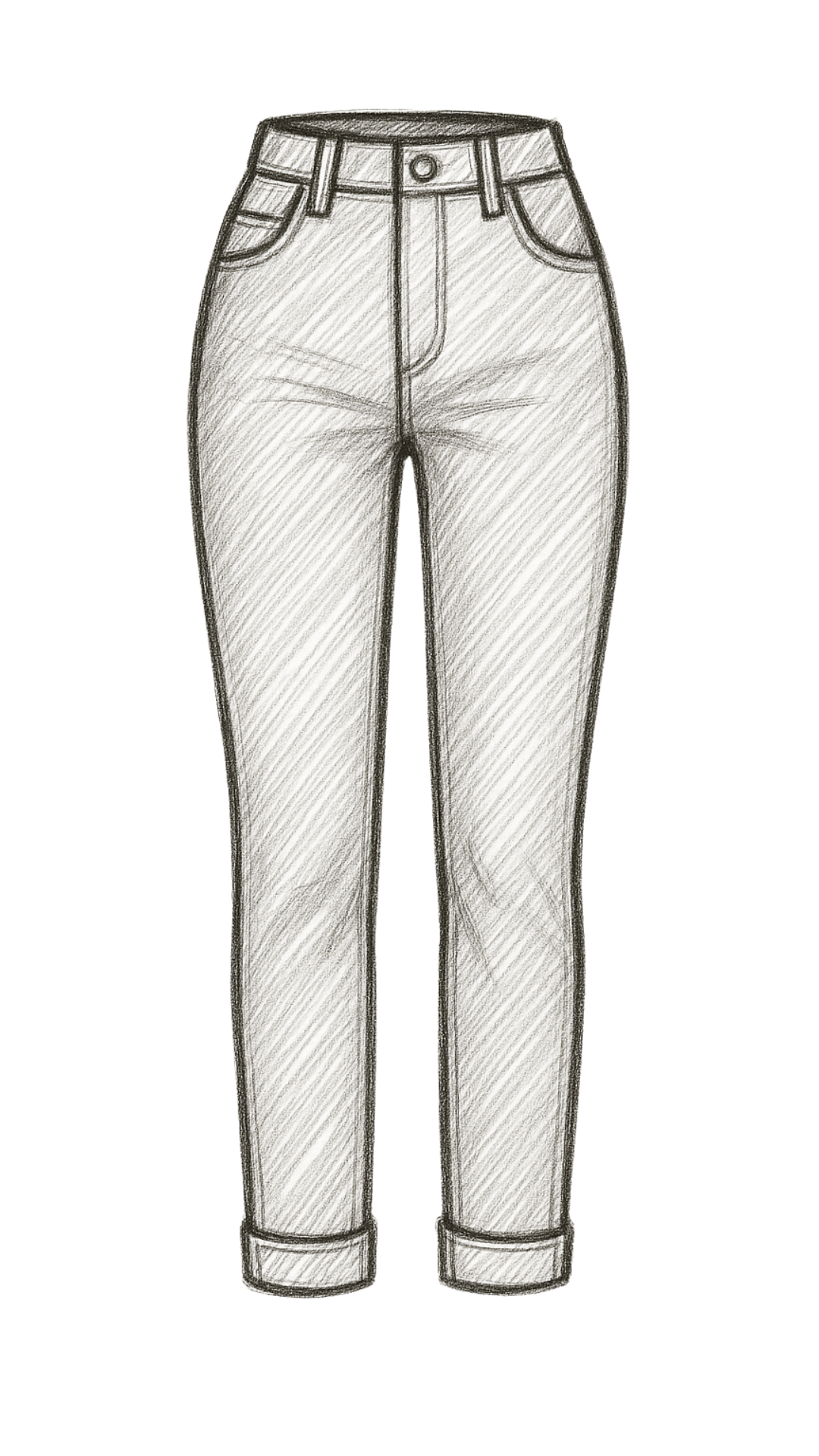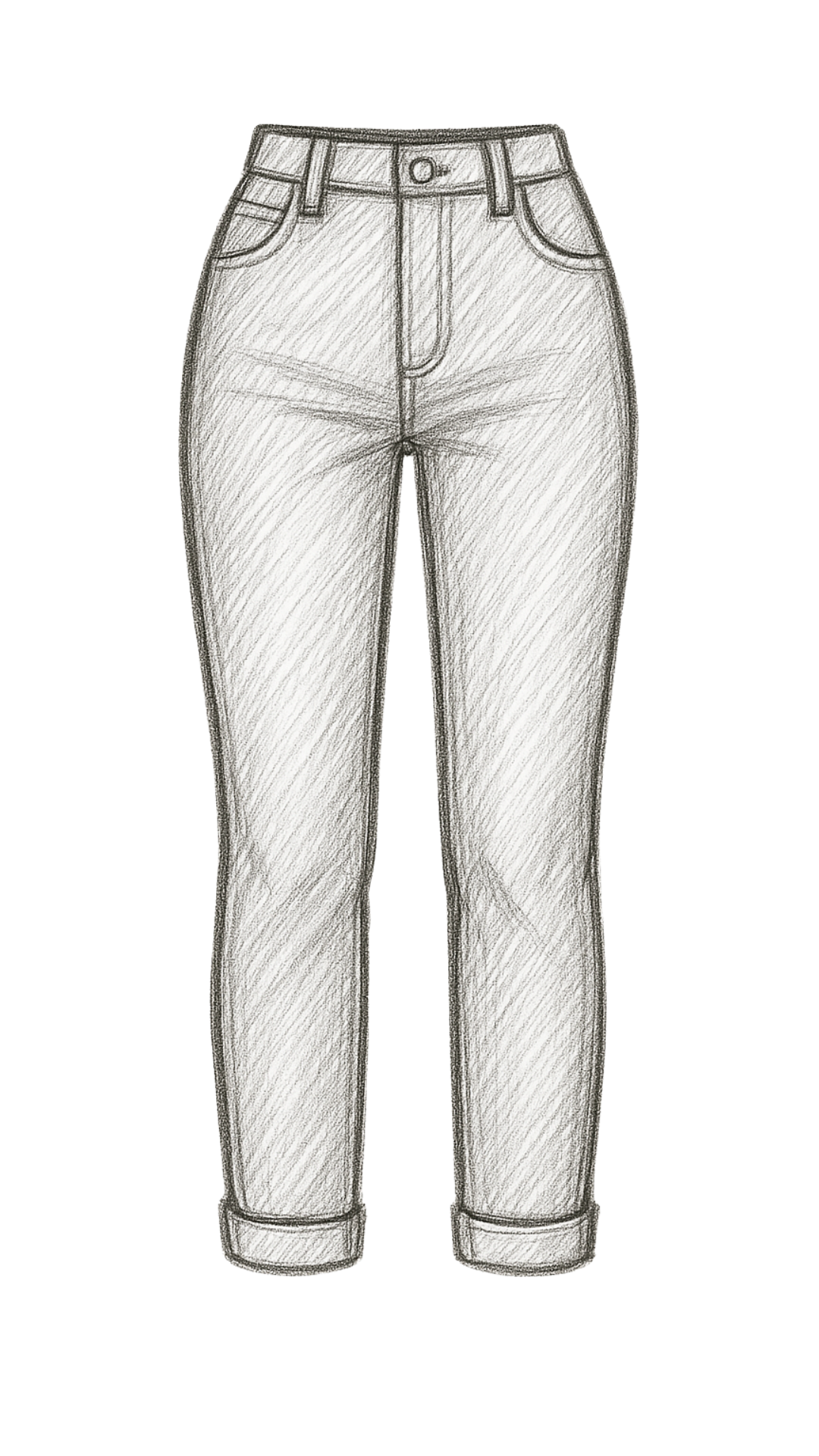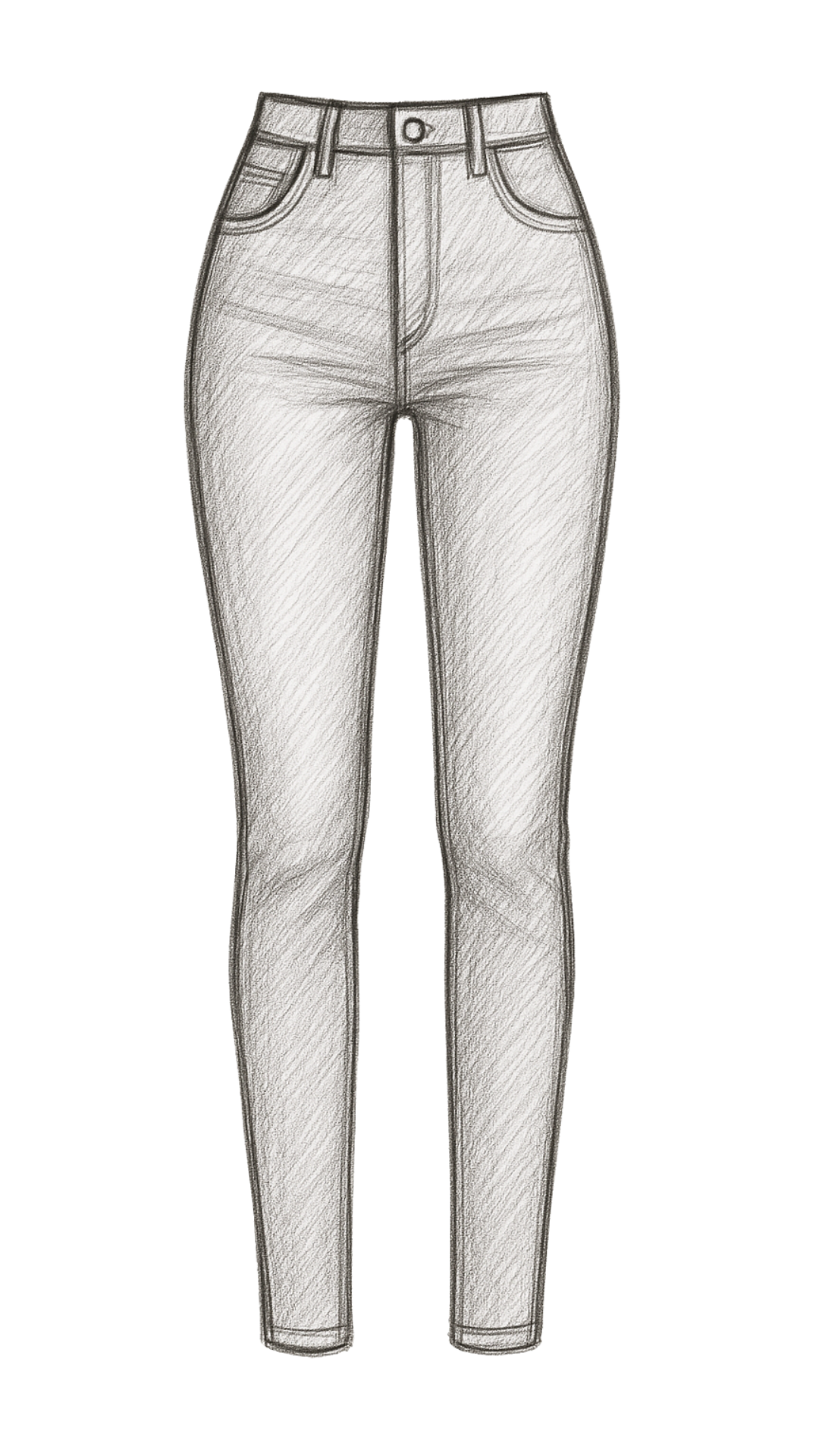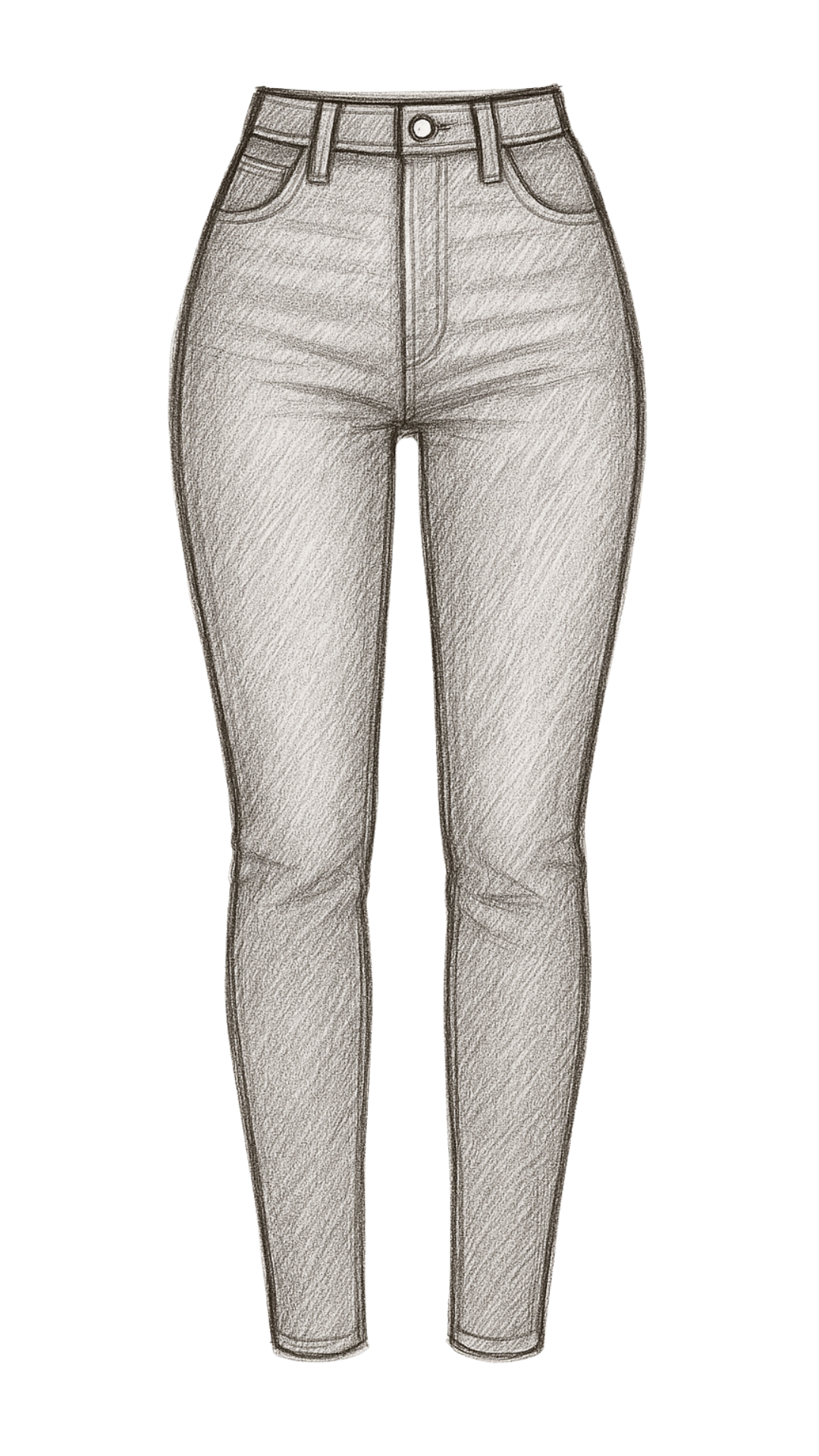The Kibbe body types are a set of 13 unique style types based on
both your look and vibe, created by David Kibbe back in the '80s.
Discover Your
Kibbe Body Type
The best-dressed people? They know exactly what suits them. They're the ones filling up your Pinterest boards, the ones you double-tap on Instagram, the influencers whose outfits you pause for in TikTok GRWMs. Knowing your Kibbe type gives you that same style insider secret. You'll start to see what really works for your body, making it easy to find the perfect fits.
Take the Kibbe
Body Type Quiz
Choose your preferred method: computer vision photo analysis or our comprehensive quiz
Photo Analysis
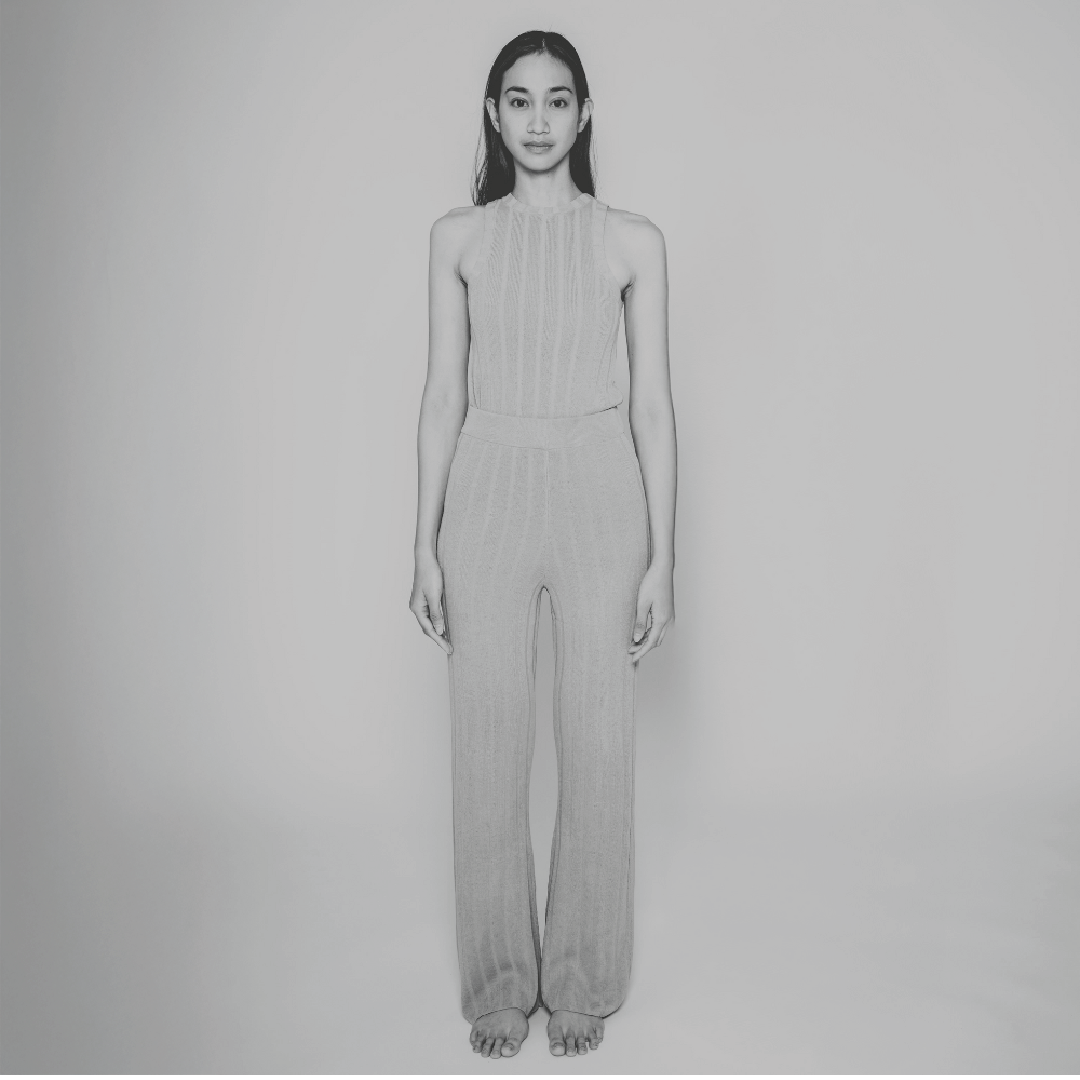
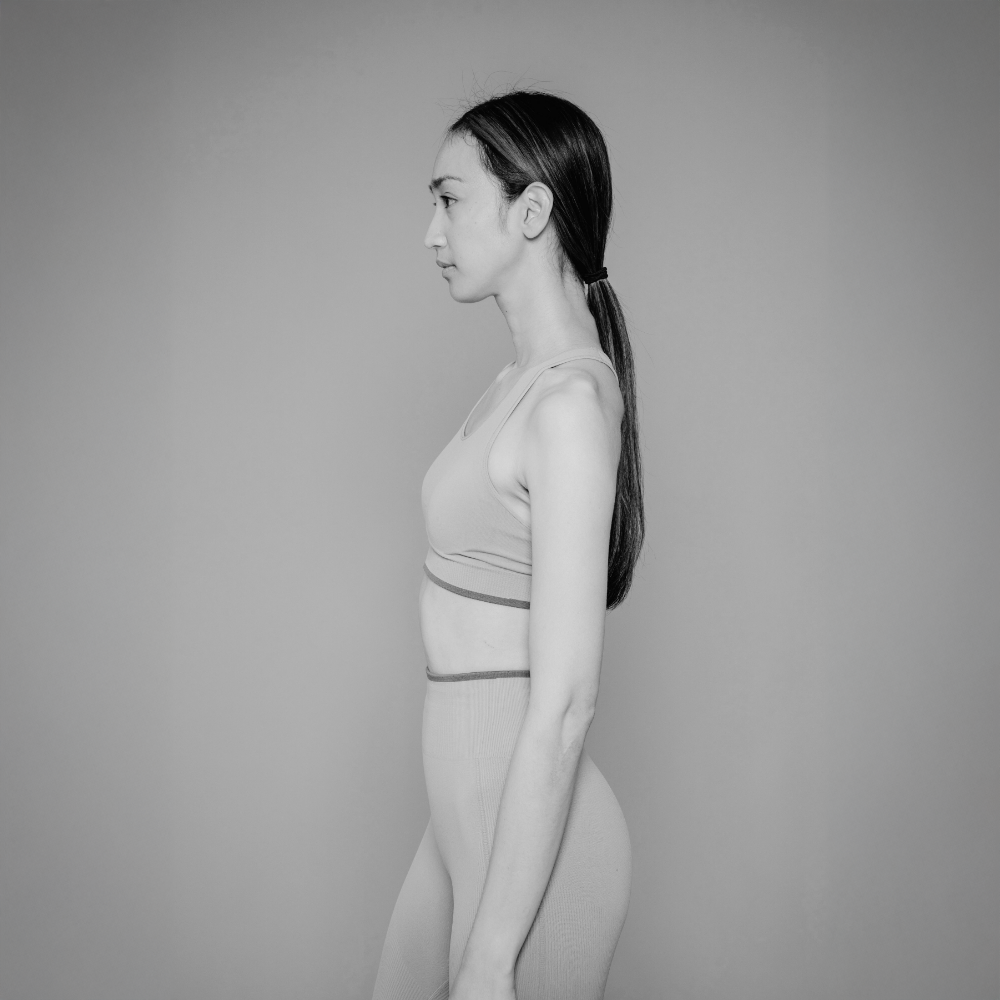
Upload photos and let our advanced AI analyze your body type using our in-house computer vision and measurement system trained on 1000+ verified Kibbe types. Get accurate results in minutes.
Take the Quiz
Results
Flamboyant Natural
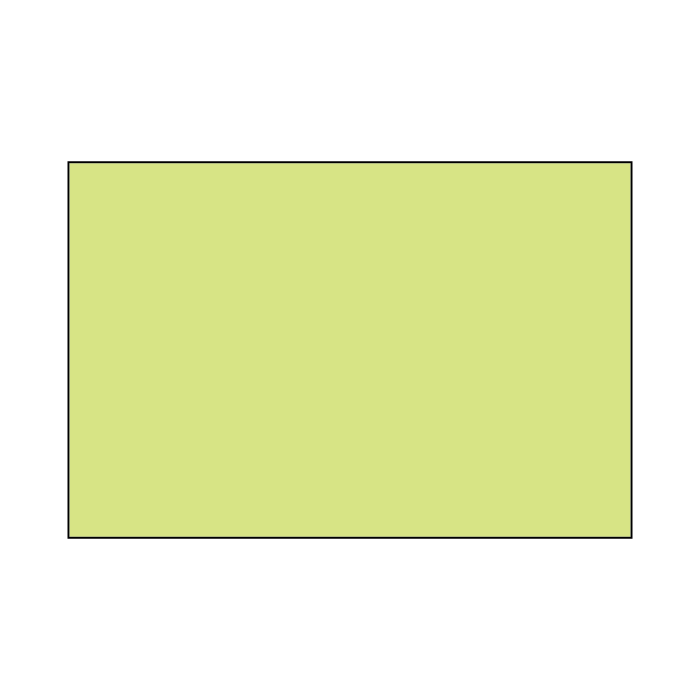
Description
Flamboyant Naturals have a tall, broad look with relaxed, strong features. There's a natural strength and openness in this frame.
Nickname
"The Nonchalant Showstopper"
Yin-Yang
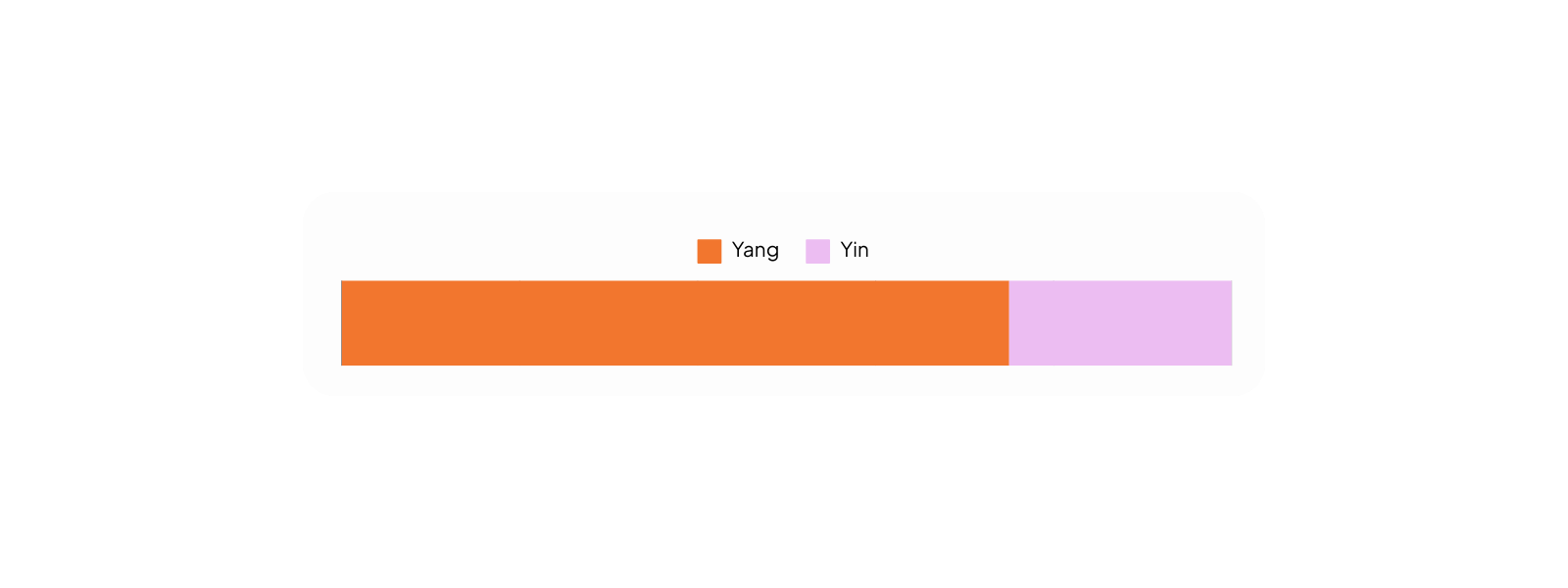
Personal Line
Characteristics
- Usually 5'6" and over
- Broad and strong frame
- Relaxed, defined structure
- Wide shoulders
- Subtle curves
Physical Features of a Flamboyant Natural
Broad, blunt bone structure with wide shoulders and muscular build. Long limbs with athletic frame and natural width through upper body. Strong facial features with broad jawline, large nose, and wide-set eyes.
These physical descriptions are from David Kibbe's original book "Metamorphosis" (1987). His methodology has evolved significantly since then—in his 2025 book "The Power of Style," he explicitly states "NO BODY PARTS" and emphasizes discovering your Image Identity through Personal Line sketching (how fabric drapes on your body) rather than matching individual features. These descriptions are provided as historical reference, not a checklist for self-typing.

Strong Broad Shoulders

Long Broad Limbs

Tapered Wide Hips

Broad Muscular Shape
Answer questions about your bone structure, body flesh, and facial features using our advanced weighted algorithm.
Visual Body Mapping
The first line in David Kibbe's book reads: "...learn to look at yourself objectively. To see yourself not as you wish you were—or as you wish you weren't—but as you actually exist." That's the purpose of the 3D mesh approach: pure objectivity.
The Process: I use advanced 3D body scanning technology combined with AI-powered line tracing to create accurate sketch lines. This helps the system accurately measure your proportions and visualize if your dominant element contains vertical or curve, as well as your additional elements, that combined, create your Kibbe type. Get your photo analysis
Sample Model

Source Photo
Upload a full-body photo

3D Body Mesh
Used for measurements & typing
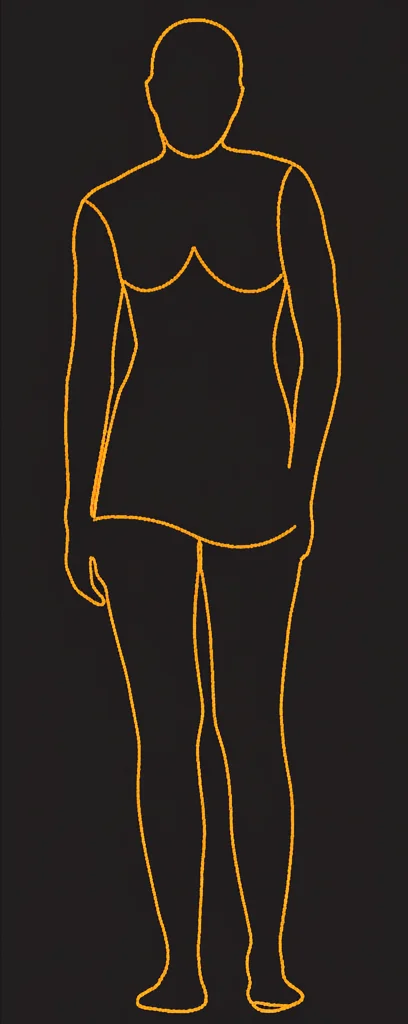
Body Sketch
Stylized illustration of your shape
"I didn't even know what Kibbe was before this but now I'm so into it. Such a fun rabbit hole."
"Brilliantly done. Whether you're new to Kibbe or a longtime fan, this delivers value and insight."
"It's hard to find well made guides in the style space, and this one truly shines."
"My result using photos was very accurate (same direction as David Kibbe has informally pointed me). Kudos!!"
Virtual Try-OnThis is new 😊
Seeing how clothes sit on your body is an essential part of the process. All premium analyses include virtual try-on for every Kibbe type in both a dress and outfit version, so you can visually compare how different silhouettes suit your proportions.
Dresses

Dramatic

Romantic

Soft Dramatic

Theatrical Romantic

Flamboyant Natural

Soft Natural

Dramatic Classic

Soft Classic
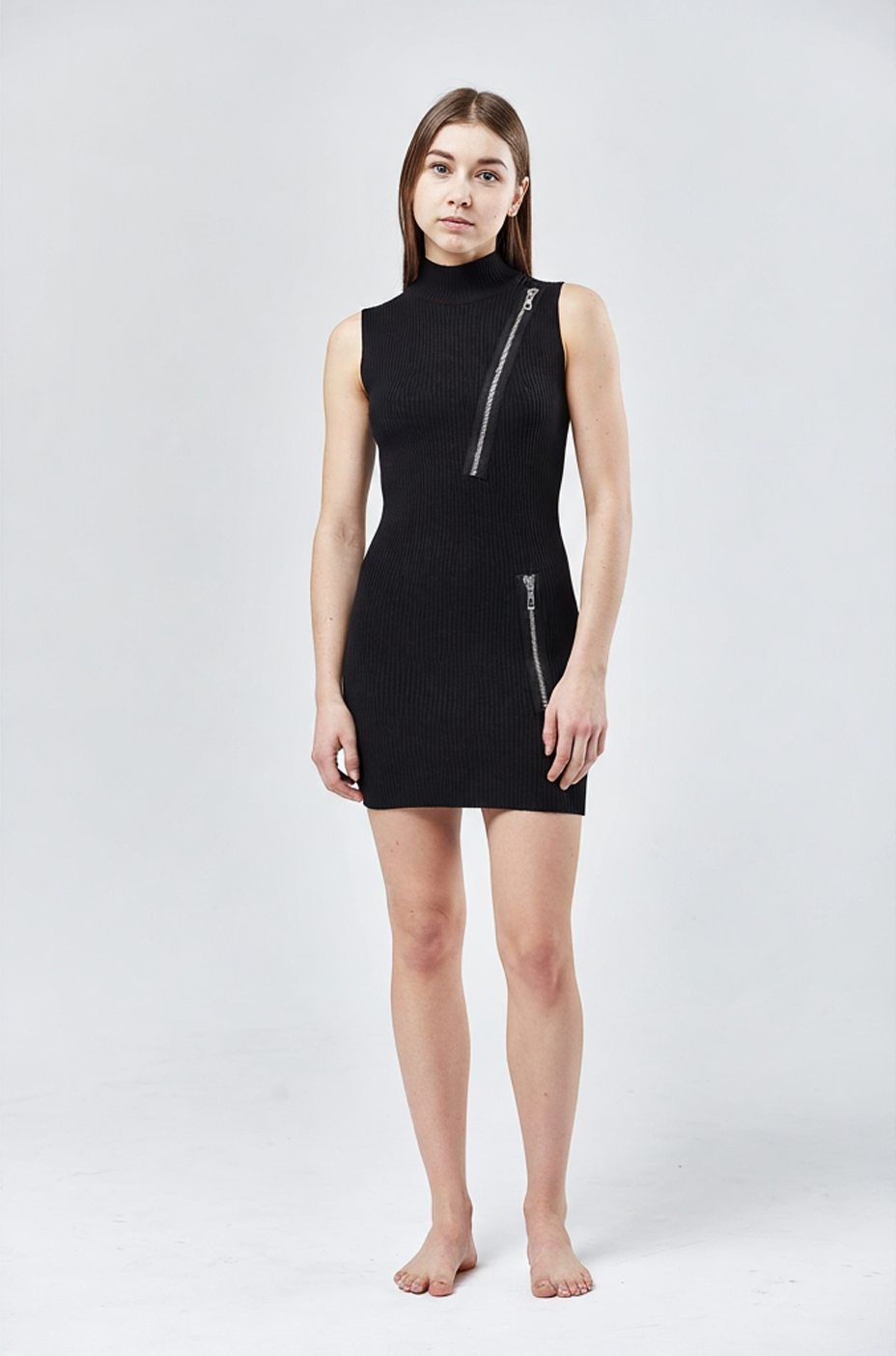
Flamboyant Gamine

Soft Gamine

Dramatic

Soft Dramatic

Flamboyant Natural

Dramatic Classic

Flamboyant Gamine

Romantic

Theatrical Romantic

Soft Natural

Soft Classic

Soft Gamine
Outfits

Dramatic

Romantic

Soft Dramatic

Theatrical Romantic

Flamboyant Natural

Soft Natural

Dramatic Classic

Soft Classic

Flamboyant Gamine

Soft Gamine

Dramatic

Soft Dramatic

Flamboyant Natural

Dramatic Classic

Flamboyant Gamine

Romantic

Theatrical Romantic

Soft Natural

Soft Classic

Soft Gamine
A note on terminology: David Kibbe's modern system uses "Image Identity" rather than "body type" and emphasizes self-discovery through sketching over quizzes. I'd love to update the entire site to reflect this, but the reality is that people searching for Kibbe are still using terms like "Kibbe types" and "Kibbe quiz." I use these terms to meet you where you are and help bridge the gap to a deeper understanding of Kibbe's true philosophy.
The 5 Image
Identity Families
Every Kibbe Image Identity belongs to one of five families: Dramatic, Natural, Classic, Gamine, or Romantic. Each family is defined by a core element that your clothing needs to accommodate.
Explore All TypesVertical
Your body allows fabric to fall straight down without interruption. As David says: "Fabric hangs straight down from the shoulders in one long line."
Width
Your upper body is broader than what comes underneath. As David says: "Breadth through shoulder/upper torso area—you can be tiny and still have this part be wider."
Balance
Your upper torso and hips are evenly proportioned—neither dominates. As David says: "Parity between outer edge of upper torso and hipbone."
Petite
Your frame is small and compressed overall. As David says: "Compact overall—Vertical or Curve packed within a compressed frame."
Curve
Your bust and hips push fabric outward. As David says: "Fabric is pushed out by the bust, cuts inward in the middle, and pushed out again by the hips."
Vertical
Your body allows fabric to fall straight down without interruption. As David says: "Fabric hangs straight down from the shoulders in one long line."
Width
Your upper body is broader than what comes underneath. As David says: "Breadth through shoulder/upper torso area—you can be tiny and still have this part be wider."
Balance
Your upper torso and hips are evenly proportioned—neither dominates. As David says: "Parity between outer edge of upper torso and hipbone."
Petite
Your frame is small and compressed overall. As David says: "Compact overall—Vertical or Curve packed within a compressed frame."
Curve
Your bust and hips push fabric outward. As David says: "Fabric is pushed out by the bust, cuts inward in the middle, and pushed out again by the hips."
Celebrity Kibbe
Type Library
Explore how iconic celebrities embody each Kibbe type. From Hollywood legends to modern stars, see real examples of each type's unique characteristics.
Explore Full Library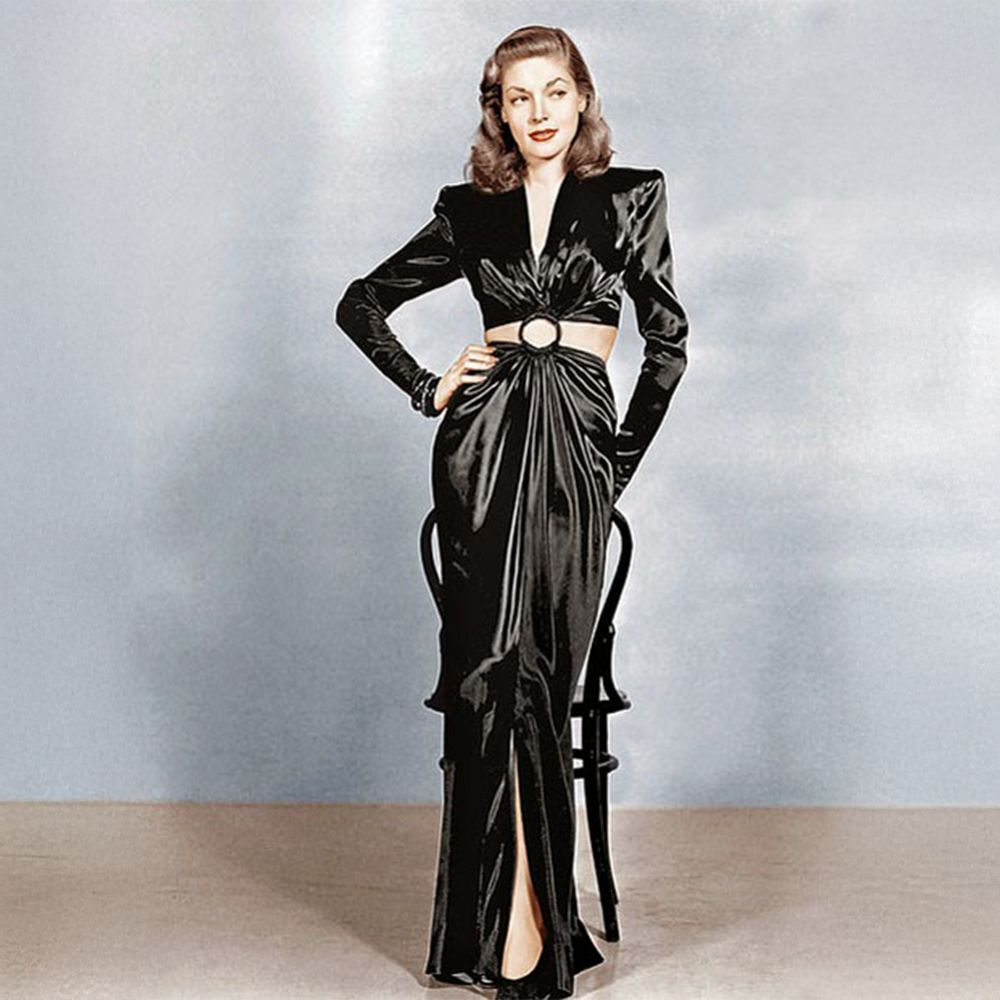
Lauren Bacall
Dramatic

Sophia Loren
Soft Dramatic
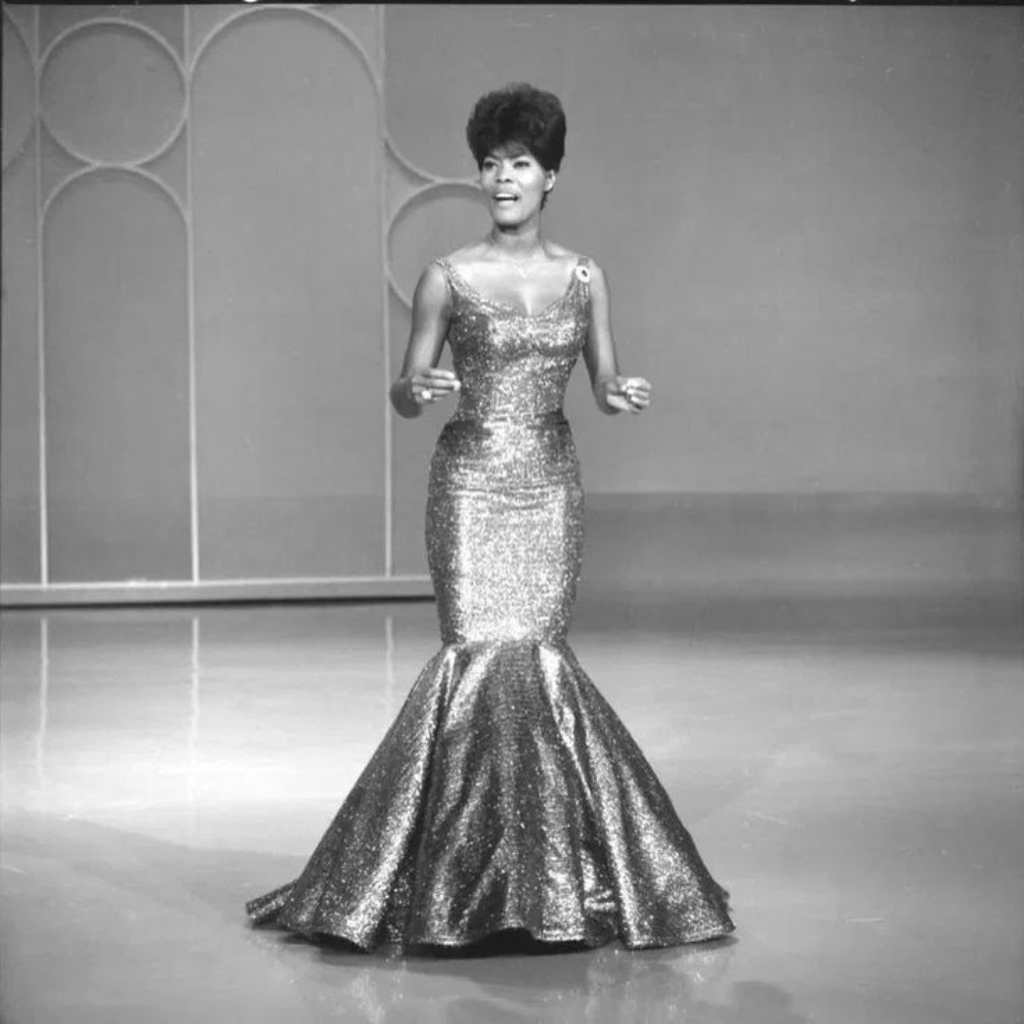
Dionne Warwick
Flamboyant Natural
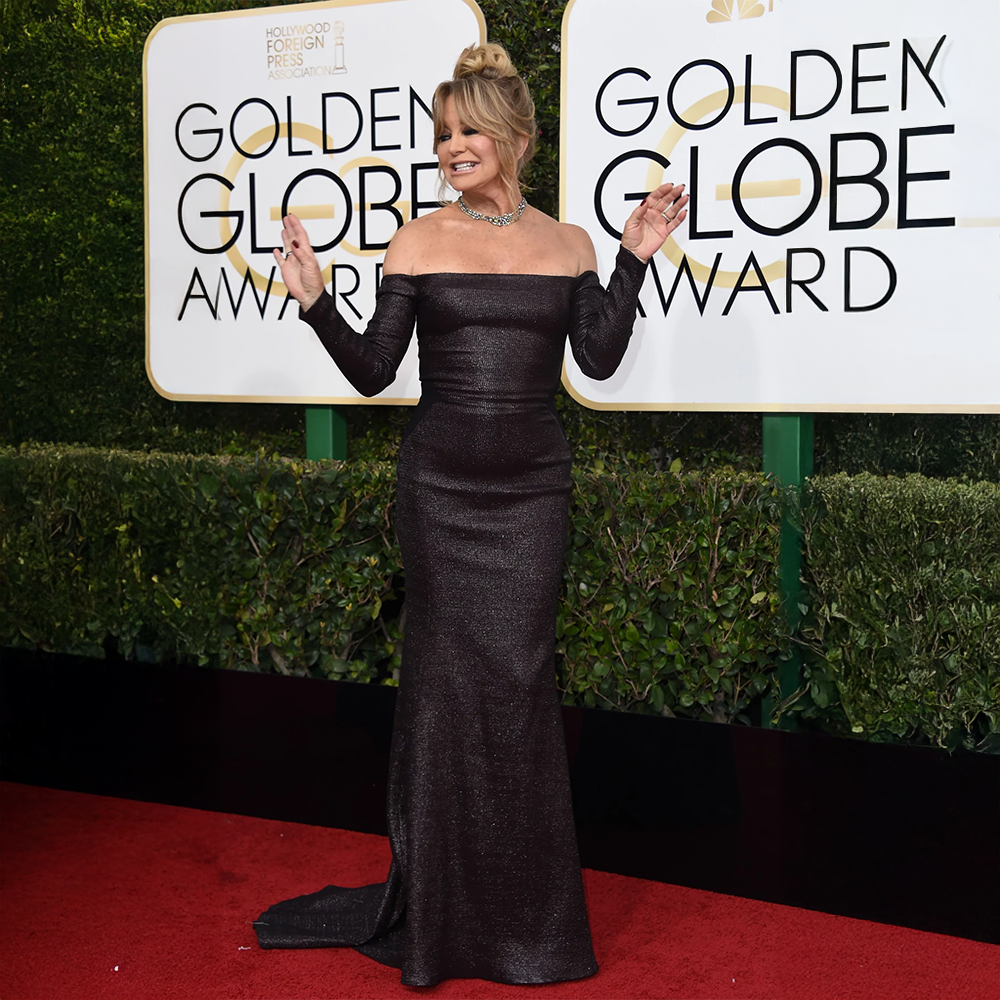
Goldie Hawn
Soft Natural
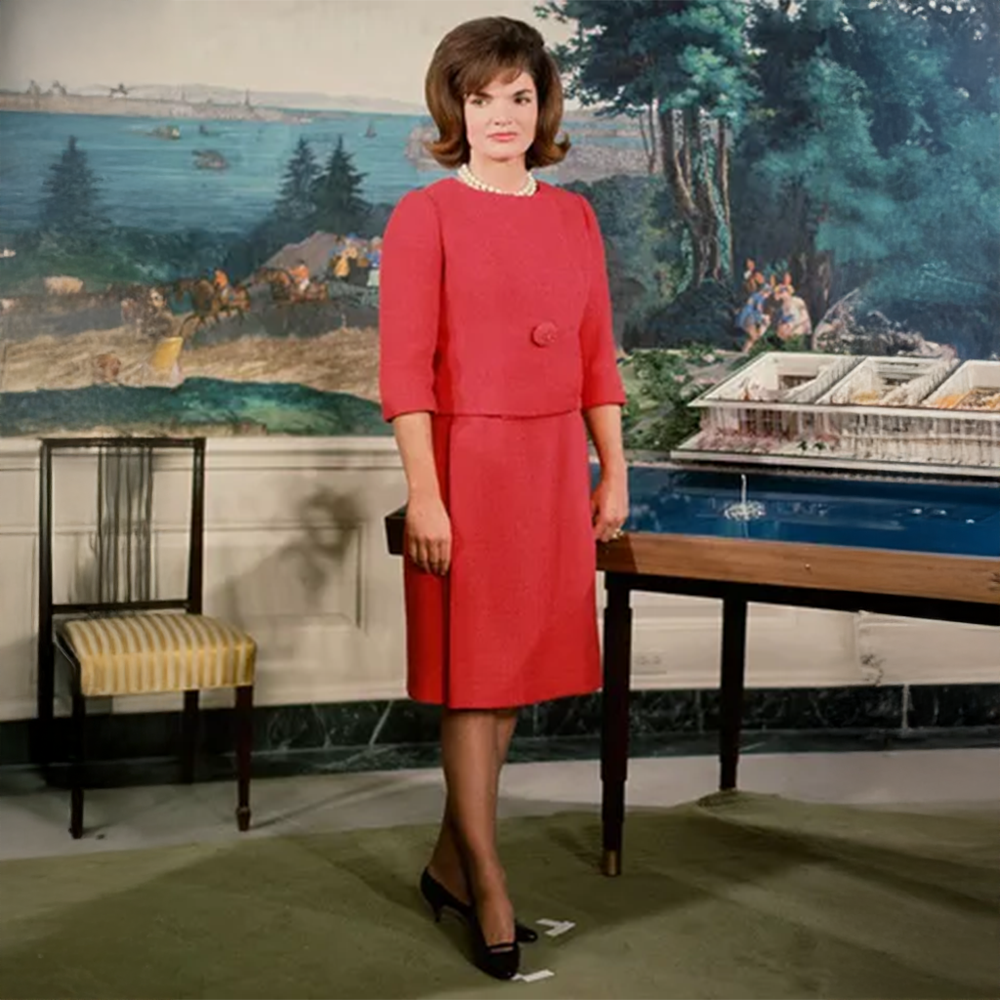
Jacqueline Kennedy
Dramatic Classic
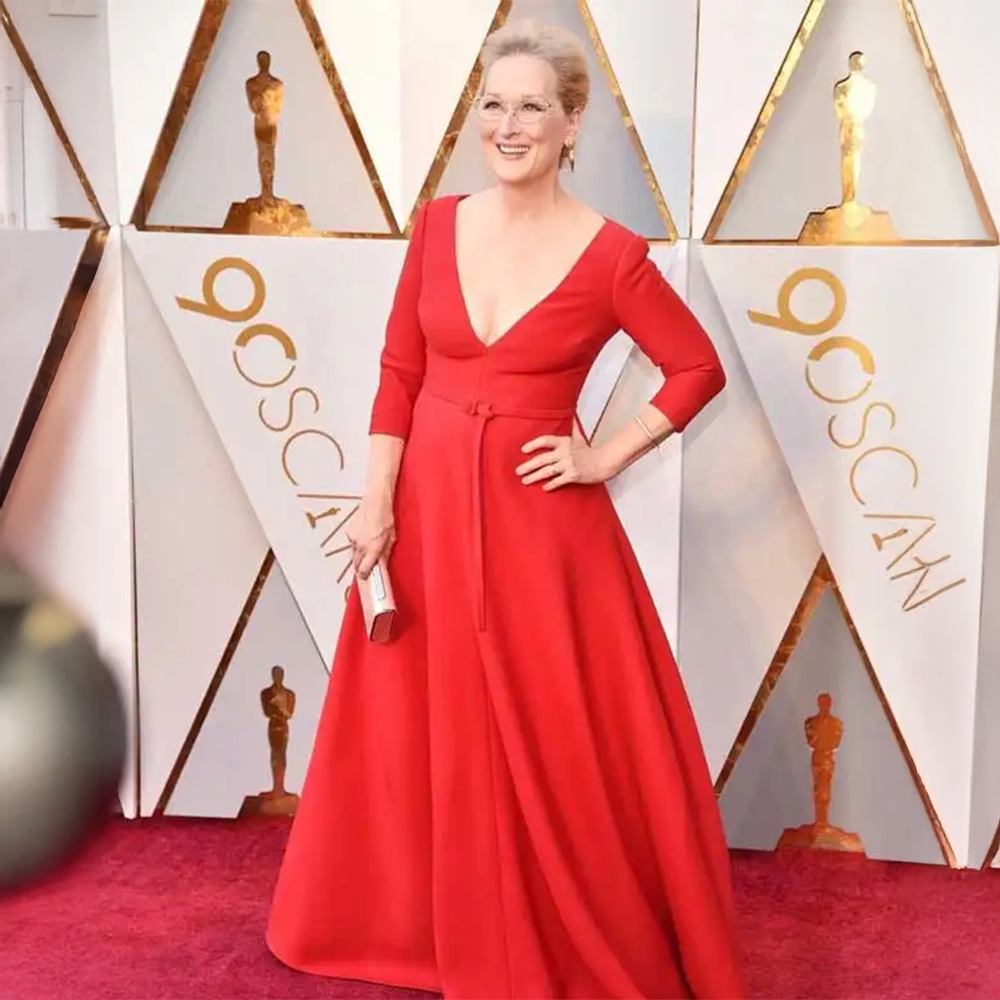
Meryl Streep
Soft Classic
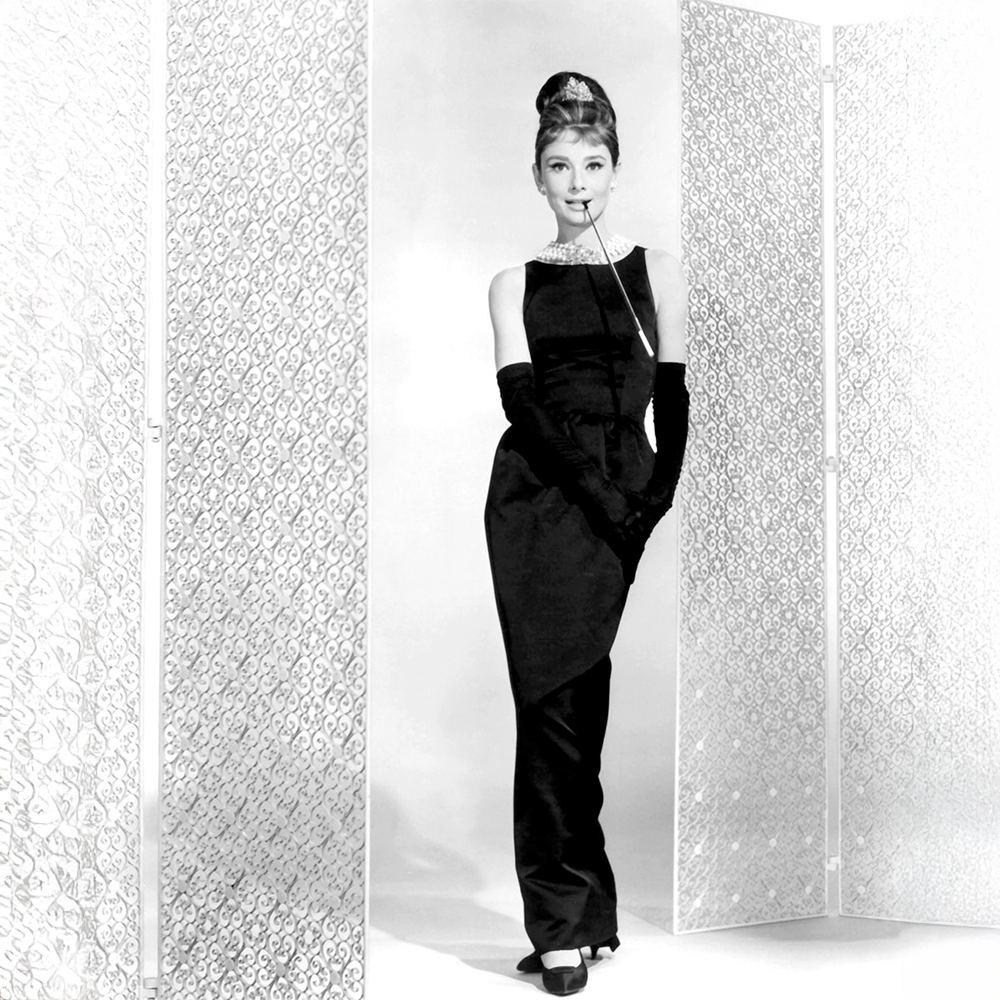
Audrey Hepburn
Flamboyant Gamine
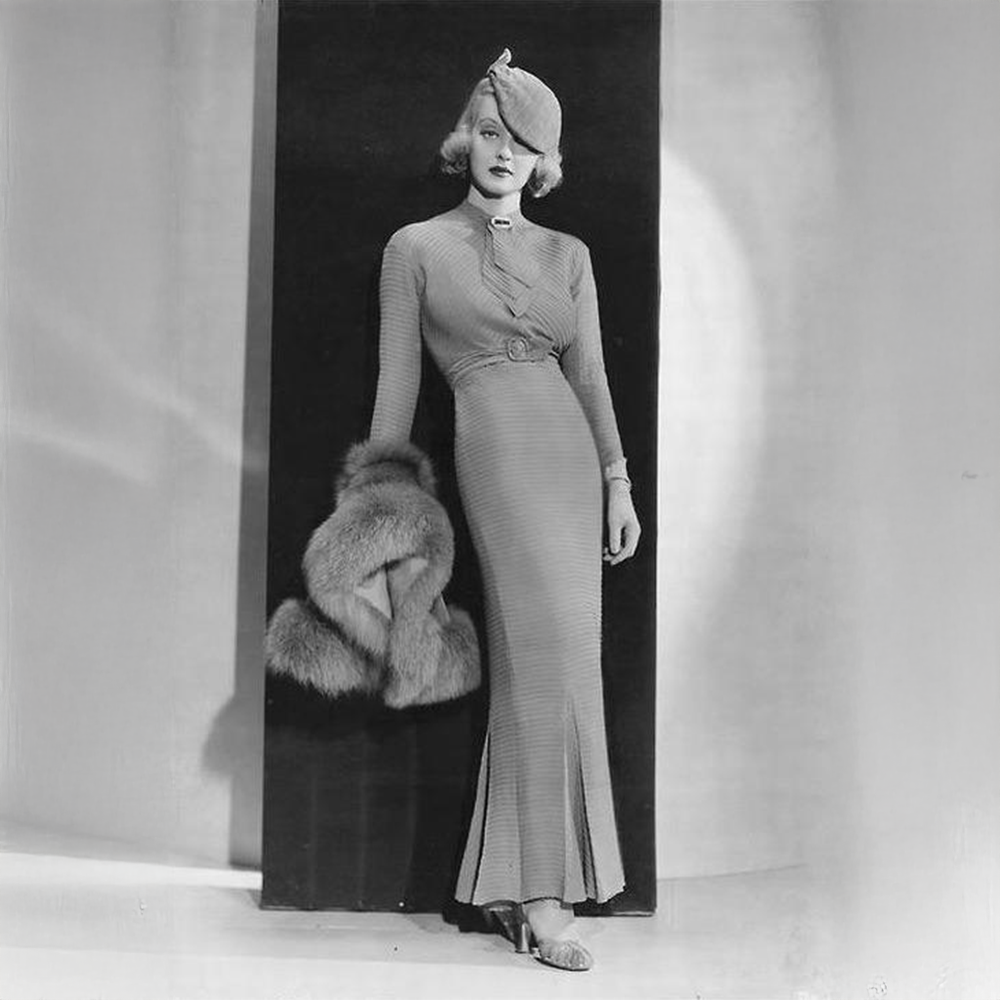
Bette Davis
Soft Gamine
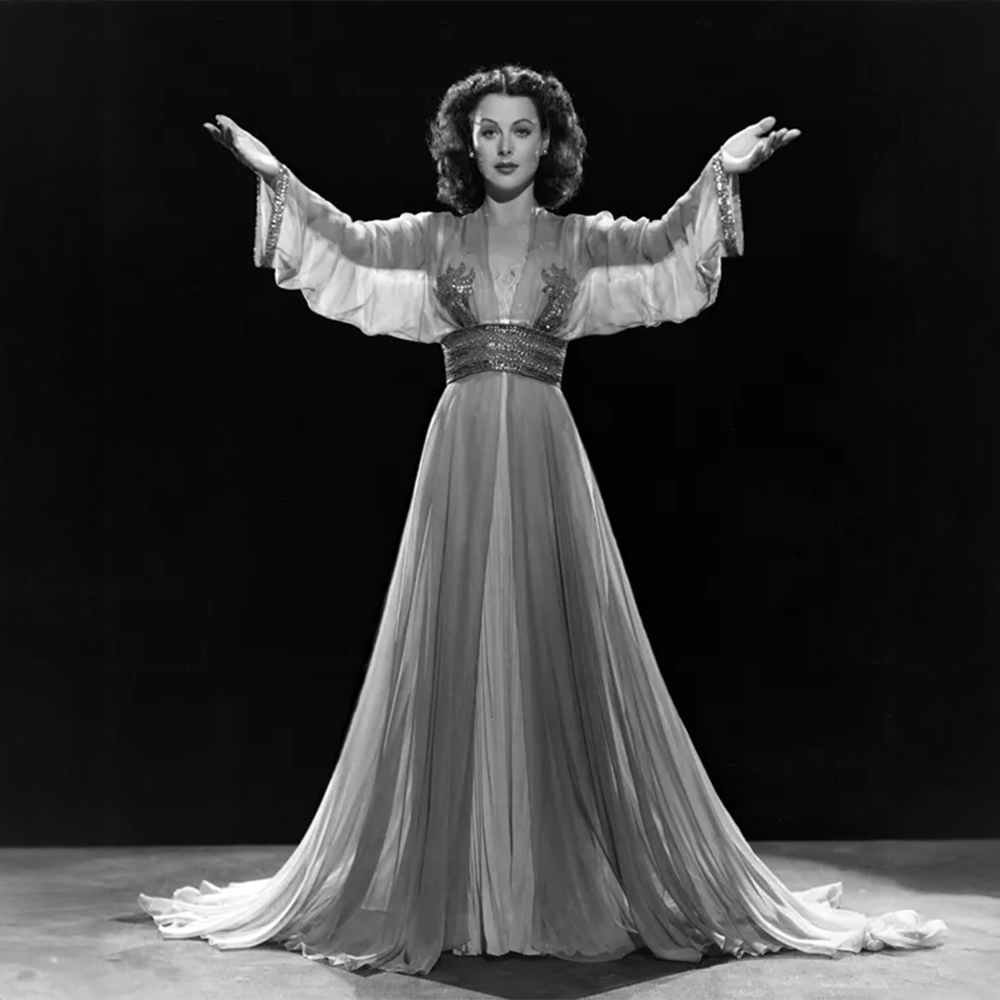
Hedy Lamarr
Theatrical Romantic
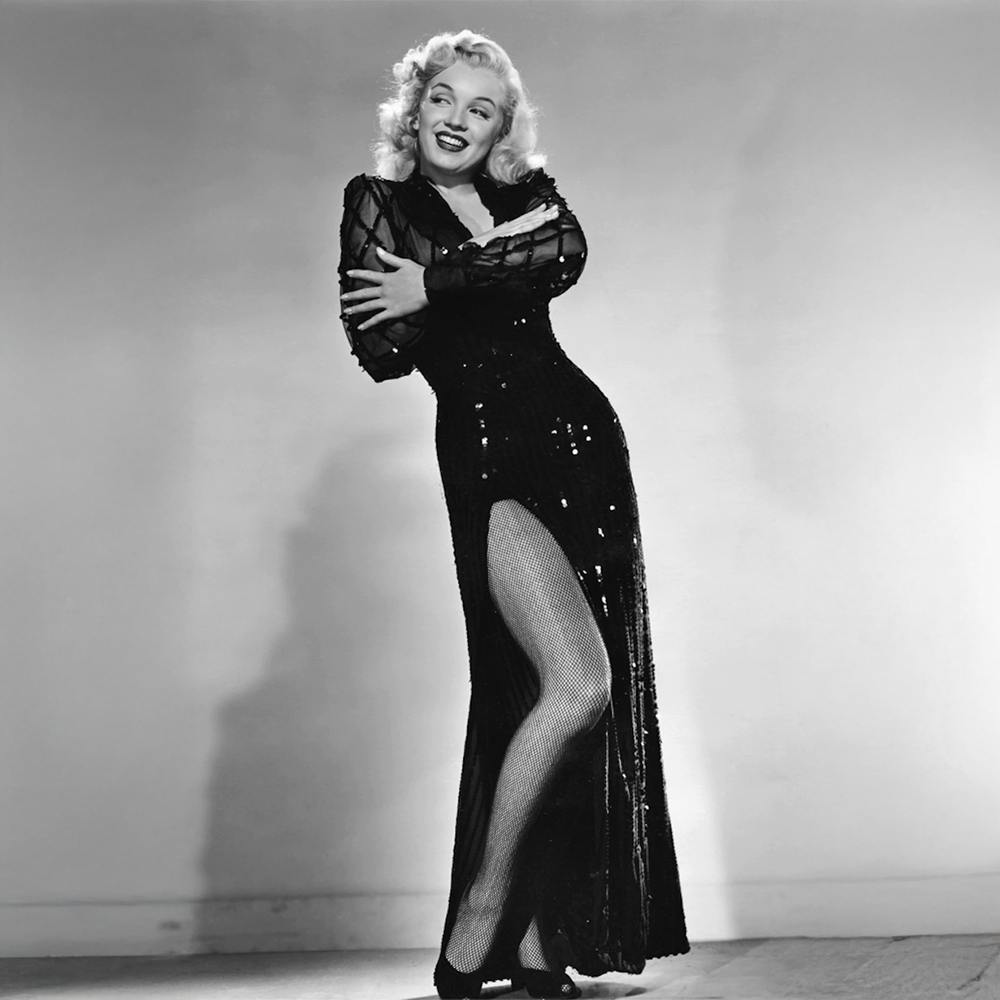
Marilyn Monroe
Romantic

Lauren Bacall
Dramatic

Sophia Loren
Soft Dramatic

Dionne Warwick
Flamboyant Natural

Goldie Hawn
Soft Natural

Jacqueline Kennedy
Dramatic Classic

Meryl Streep
Soft Classic

Audrey Hepburn
Flamboyant Gamine

Bette Davis
Soft Gamine

Hedy Lamarr
Theatrical Romantic

Marilyn Monroe
Romantic
The Kibbe Body App
Find your Kibbe type with ease! Just upload a photo or take the quiz, and get personalized insights into your unique body type.
Download the appUnderstanding
Yin-Yang Balance
In the Kibbe system, yin-yang balance represents the harmony between softness (yin) and structure (yang) in a person's physical appearance and style. Yin qualities are rounded, soft, and delicate, while yang qualities are angular, sharp, and bold. Each type blends these elements uniquely, creating a style that reflects a specific balance of softness and structure.
The Man Behind the Kibbe Revolution
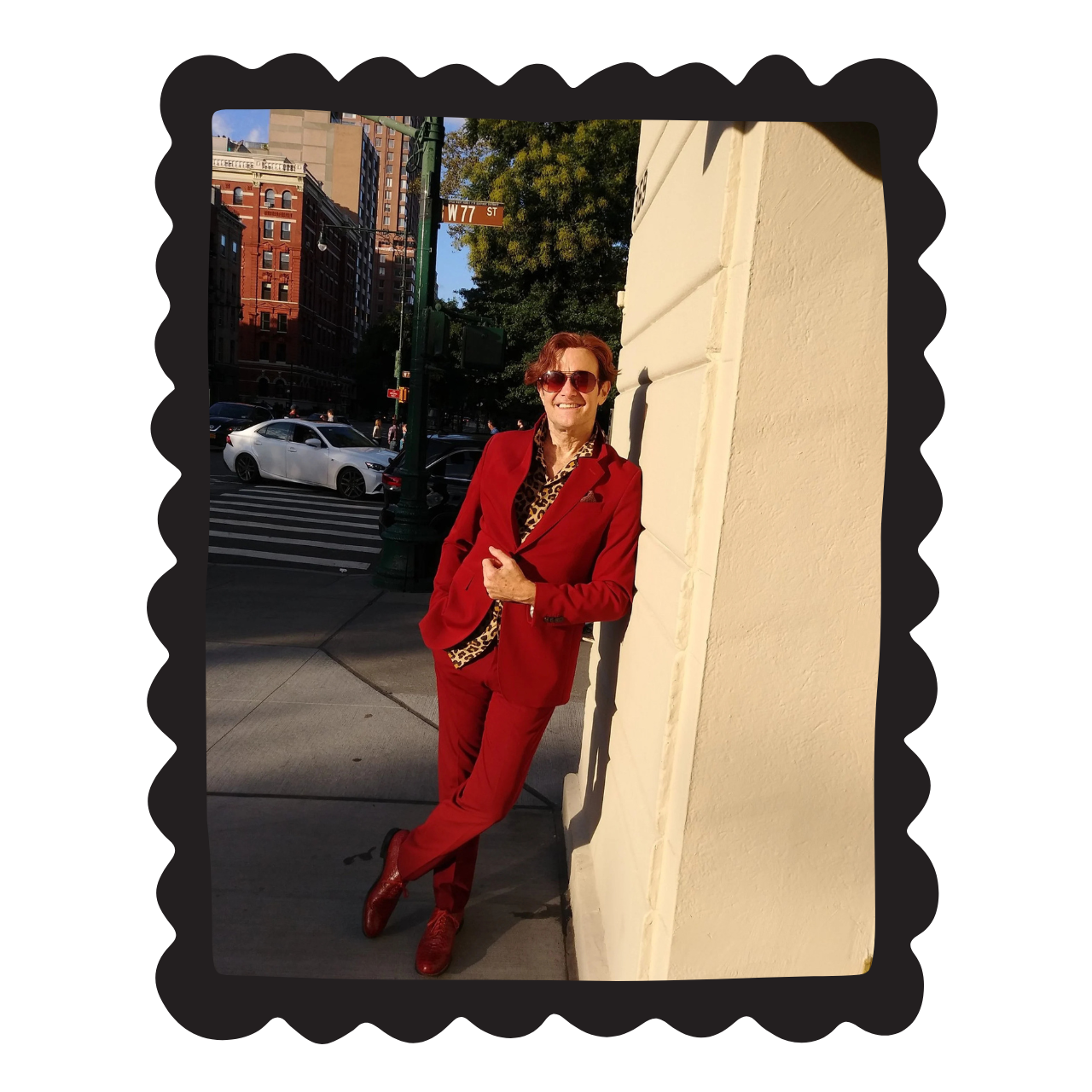
Who Is David Kibbe?
David Kibbe is more than a stylist—he's a style visionary who transformed how people think about personal fashion. In the 1980s, Kibbe became a pioneer by introducing a style philosophy that wasn't about strict body types but about finding what makes each person unique. His approach focuses on working with your natural shape, not against it, making him a major influence in the world of fashion and style.
1980s Style Icon
The Kibbe movement began in the 1980s with his groundbreaking book, Metamorphosis, which transformed how people viewed personal style. This book, now out of print (and often priced at $800 for a used copy!), encouraged readers to embrace their natural beauty rather than conforming to trends. With his fresh approach, Kibbe quickly gained national attention, appearing on shows like Oprah and in top magazines. His philosophy reached millions, making him a key figure in the world of self-discovery through style.

The Kibbe Comeback
Today, David Kibbe's ideas are seeing a resurgence, especially among Gen Z and TikTok enthusiasts who love his authentic, empowering approach to style. With a new book published in January 2025, Kibbe's wisdom is reaching a whole new generation, allowing anyone to explore their personal style identity from anywhere. While Kibbe himself remains mostly offline, he continues to offer private sessions for those looking for a hands-on style transformation. Kibbe's timeless ideas are more accessible than ever, proving that great style truly has no expiration date.
163 Million Views across social media
(source: Infegy Atlas 2/2025)
Triple Threat Performer
In his spare time, David has also created a thriving career as a triple threat performer, appearing in original works produced by Lincoln Center, Neighborhood Playhouse, Primary Stages, Circle in the Square, Hudson Guild and the Kennedy Center as well as having starred in 2 critically acclaimed one-man shows in NYC.
"David Kibbe is more comfortable in front of a crowd than most people are being in the crowd" — NY Post

1980s Style Icon
The Kibbe movement began in the 1980s with his groundbreaking book, Metamorphosis, which transformed how people viewed personal style. This book, now out of print (and often priced at $800 for a used copy!), encouraged readers to embrace their natural beauty rather than conforming to trends. With his fresh approach, Kibbe quickly gained national attention, appearing on shows like Oprah and in top magazines. His philosophy reached millions, making him a key figure in the world of self-discovery through style.
The Kibbe Comeback
Today, David Kibbe's ideas are seeing a resurgence, especially among Gen Z and TikTok enthusiasts who love his authentic, empowering approach to style. With a new book published in January 2025, Kibbe's wisdom is reaching a whole new generation, allowing anyone to explore their personal style identity from anywhere. While Kibbe himself remains mostly offline, he continues to offer private sessions for those looking for a hands-on style transformation. Kibbe's timeless ideas are more accessible than ever, proving that great style truly has no expiration date.
163 Million Views across social media
(source: Infegy Atlas 2/2025)
Triple Threat Performer
In his spare time, David has also created a thriving career as a triple threat performer, appearing in original works produced by Lincoln Center, Neighborhood Playhouse, Primary Stages, Circle in the Square, Hudson Guild and the Kennedy Center as well as having starred in 2 critically acclaimed one-man shows in NYC.
"David Kibbe is more comfortable in front of a crowd than most people are being in the crowd" — NY Post
Read The Blog
Discover insights about body types, style recommendations, and the Kibbe system
Explore All Posts
What Each Kibbe Type Should Wear to the 2025 Met Gala
Kibbe At The MetThe Met Gala is fashion’s biggest night—and this year, the 2025 theme “Superfine: Tailoring Black Style” brings structure, sharpness, and swagger to the forefront. It’s not about...

The Kibbe Wedding Dress Guide: Couture Inspiration for Every Body Type
What To Wear To Your WeddingWhen it comes to choosing a wedding dress, the only real rule is this: wear whatever makes you feel like magic. The gown you fall in love with is the right one—whether it...

The Best Jeans for Every Kibbe Body Type (Complete Guide)
Finding the perfect pair of jeans can feel impossible — but it doesn’t have to be.If you’ve ever wondered why some styles feel amazing while others never sit right, the answer might be your Kibbe...
Frequently Asked Questions
The modern Kibbe system recognizes 10 types (the 3 "pure" balanced types have been discontinued). Here is each type with its height limit, dominant/additional elements, and yin/yang balance:
| Type | Height | Dominant | Additional | Yin/Yang |
|---|---|---|---|---|
| Dramatic | Any height | Vertical | Narrow | Yang |
| Soft Dramatic | Any height | Vertical | Curve | Yang |
| Flamboyant Natural | Any height | Vertical | Width | Yang |
| Soft Natural | Under 5'6" | Curve | Width | Yang |
| Dramatic Classic | Under 5'6" | Vertical | Balance | Yang |
| Soft Classic | Under 5'6" | Curve | Balance | Yin |
| Flamboyant Gamine | Under 5'5" | Vertical | Petite | Yin |
| Soft Gamine | Under 5'5" | Curve | Petite | Yin |
| Theatrical Romantic | Under 5'6" | Curve | Narrow | Yin |
| Romantic | Under 5'6" | Curve | Double Curve | Yin |
Note: Yang types have more sharp/angular qualities, while Yin types have more soft/rounded qualities.
Height plays a crucial role in determining your Kibbe type. At 5'6" and over, you automatically have Vertical as your dominant. All Curve dominant types must be under 5'6".
| Type | Height | Dominant | Additional |
|---|---|---|---|
| Dramatic | Any height | Vertical | Narrow |
| Soft Dramatic | Any height | Vertical | Curve |
| Flamboyant Natural | Any height | Vertical | Width |
| Dramatic Classic | Under 5'6" | Vertical | Balance |
| Flamboyant Gamine | Under 5'5" | Vertical | Petite |
| Romantic | Under 5'6" | Curve | Double Curve |
| Theatrical Romantic | Under 5'6" | Curve | Narrow |
| Soft Natural | Under 5'6" | Curve | Width |
| Soft Classic | Under 5'6" | Curve | Balance |
| Soft Gamine | Under 5'5" | Curve | Petite |
Note: It's possible to be under 5'6" and still have Vertical as your dominant. Both Gamine types (with Petite) must be under 5'5".
Each Kibbe type tends to gain and distribute weight differently based on their Yin/Yang balance. Understanding your type's weight pattern can help with realistic expectations and dressing strategies.
| Type | Weight Gain Pattern |
|---|---|
| Dramatic | Hips and upper thighs only; NOT upper torso. Body shape remains straight (not curvy). |
| Soft Dramatic | All over the fleshiest parts: bust, hips, waist, thighs, upper arms, and especially the face. |
| Flamboyant Natural | Becomes square and stocky; face becomes fleshy and puffy. Extreme excess weight collects primarily from waist down. |
| Soft Natural | Extremely soft and fleshy; waist thickens first. Upper arms, thighs, and hips collect excess weight most rapidly. |
| Dramatic Classic | Excess weight shows up right away and collects from the waist down. Hips and thighs gain; rarely around bustline. Becomes more pear-shaped. |
| Soft Classic | Body becomes very soft; facial features become very fleshy. "Thickish" look; waist is first to lose definition. |
| Flamboyant Gamine | Becomes stocky and square. Excess weight from waist down, rarely above. Arms, legs, waist, and hip area become thick. Face may become puffy and fleshy. |
| Soft Gamine | Very rounded; weight collects mainly in bust and hip areas. Arms and thighs get soft; face becomes quite fleshy. |
| Theatrical Romantic | Figure remains hourglass with defined waist. Upper arms, thighs, and face become quite fleshy. |
| Romantic | Body only gets more rounded overall; face gets very full. |
Source: David Kibbe's Metamorphosis (1987)
